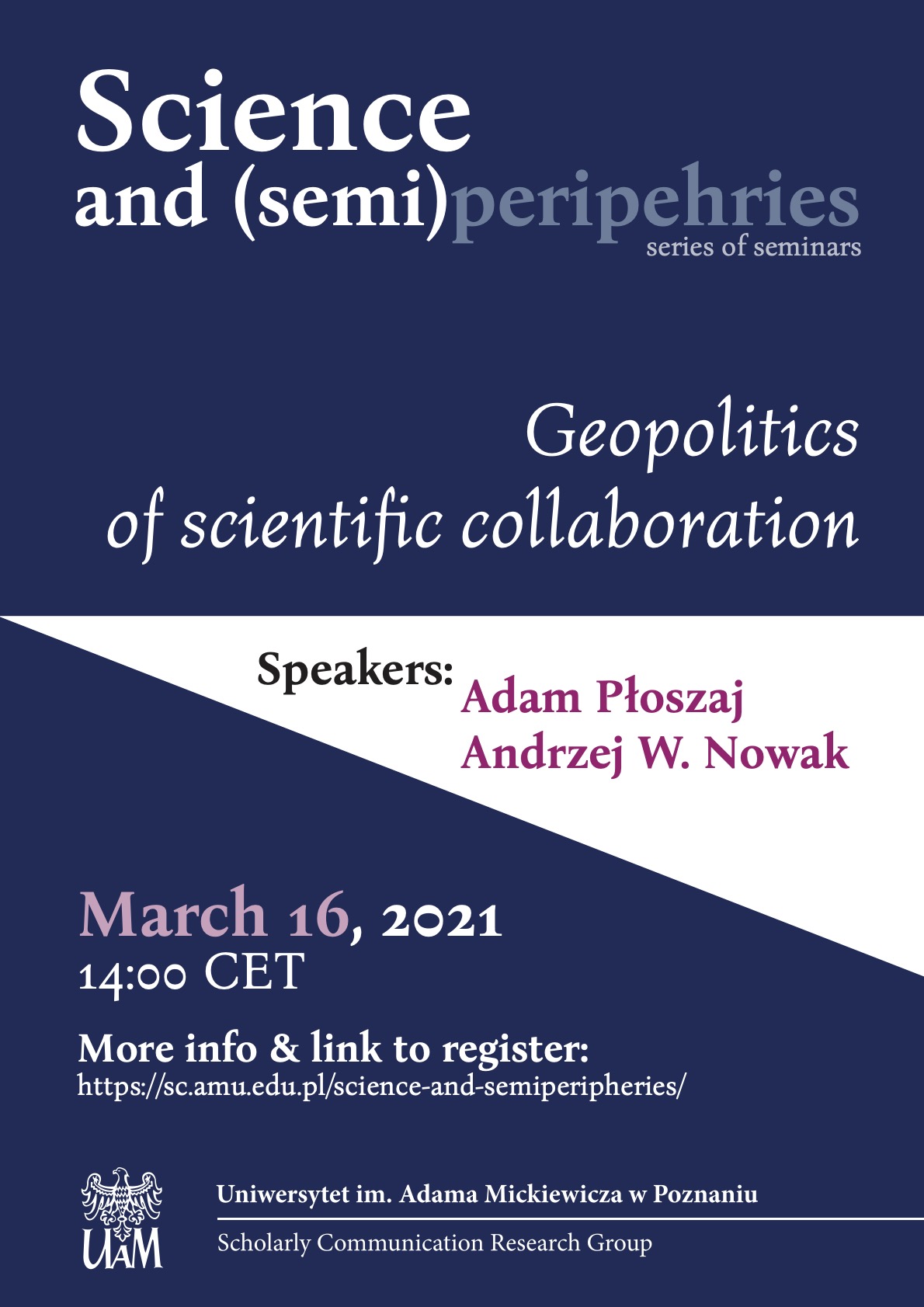Our series of seminars addresses the complex role of science in the semi-peripheries—zones considered to play a crucial transmitting function between the center and the peripheries of science. Today, in the networked and globalized world of science, such a bridging function of economic and scientific semi-peripheries appears to be disappearing.
We do not want to limit our understanding of these semi-periphery functions by narrowly focusing on their functional aspect for either the center or the peripheries. Our interest in the global semi-peripheral science systems and organizational modes of scientific enterprise stems from recognizing the creative potential of alternative methods of modernizing (alter-modernization) science and modernizing through science. As both modes were historically present in the global semi-peripheries, we want to explore how their potential may be revitalized and recovered.
Therefore, in our seminars, we will grapple with the issues of alternative approaches to modernization through science, measuring science, and experiencing science present at the peripheries. We will focus on the positive and tangible aspects of the materiality of semi-peripheral scientific enterprise, whether institutionalized or lived through different epistemological projects. We encourage participants and guest speakers to go beyond the simplistic neither/nor false alternative and explore the alter-modern character of the overlooked semi-peripheral science.
List of seminars:
Season 2 (2025-2026) – Global Knowledge Production and Academic (Semi)Peripheries
Coordination: dr Ivan Kislenko & dr hab. Krystian Szadkowski
SCRG happily invites you to the fifth seminar in a new season of our series on academic (semi)peripheries. Our featured speaker will be Franciszek Krawczyk, who will give a talk entitled: „Developing Oligopolies Through Hegemonic Cycles: Methodological Challenges of World-System Analysis of Scholarly Communication”.
Registration: [link]
Thursday, 19th of June 2025 at 14:00 CET
Abstract:
This paper formulates methodological guidelines for applying world-systems analysis to the study of scholarly communication. It begins by examining the influence of two XX century sociologists, Edward Shils and Joseph Ben-David, on mainstream conceptualizations of centres and peripheries, particularly in relation to citation inequalities, in science and higher education studies. Tracing the limits of such theoretisations of centre-peripheries dynamics, it then argues that a world-systems perspective invites a reinterpretation of transformations in scholarly communication infrastructure through the lens of the economic history of publishing. The paper proposes a model for interpreting the contemporary oligopoly of academic publishers in terms of the hegemonic cycles of the world-system. The paper concluded with discussion of historical examples illustrating how this process of oligopolization contributed to the peripheralization of academic publishing during the capitalist transformation of 1990s in Poland.
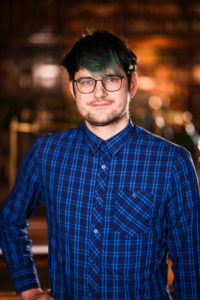 Franciszek Krawczyk, PhD is a part-time research assistant in the Scholarly Communication Research Group of Adam Mickiewicz University. Currently, he is conducting his postdoc project “Is Trinity College Dublin semi-peripheral? Study of two conflicting traditions of writing about centre and peripheries” in Dublin. He is also engaged in the project “Origins and development of the peripheral academic capitalism in Poland (1990-2021)” and preparing an application for an original project about the history of Polish academic publishing. He recently wrote a PhD thesis in philosophy, “Science without centre? Resistance against the domination of the centre in academic peripheries,” where he contributes to a reinterpretation of world-system analysis as focused on strategies of resistance rather than on mechanisms of domination. His PhD and MA thesis (“Scholarly Communication in the Model of Centro-Peripheral Dependencies: The Case of Predatory Journals”,) were part of the Evaluation game project.
Franciszek Krawczyk, PhD is a part-time research assistant in the Scholarly Communication Research Group of Adam Mickiewicz University. Currently, he is conducting his postdoc project “Is Trinity College Dublin semi-peripheral? Study of two conflicting traditions of writing about centre and peripheries” in Dublin. He is also engaged in the project “Origins and development of the peripheral academic capitalism in Poland (1990-2021)” and preparing an application for an original project about the history of Polish academic publishing. He recently wrote a PhD thesis in philosophy, “Science without centre? Resistance against the domination of the centre in academic peripheries,” where he contributes to a reinterpretation of world-system analysis as focused on strategies of resistance rather than on mechanisms of domination. His PhD and MA thesis (“Scholarly Communication in the Model of Centro-Peripheral Dependencies: The Case of Predatory Journals”,) were part of the Evaluation game project.
SCRG happily invites you to the sixth seminar in a new season of our series on academic (semi)peripheries. Our featured speaker will be Lucía Céspedes, who will give a talk entitled: „The Tower and the Library: the Role of Infrastructures in the Circulation and Discoverability of Non-Anglophone Scholarly Publications”.
Registration: [link]
Thursday, 26th of June 2025 at 14:00 CET
Abstract:
Both Clarivate’s Web of Science (WoS) and Elsevier’s Scopus have been for decades the main sources of bibliometric information. While carefully curated, these proprietary, closed databases are largely biased towards publications in English, underestimating the use and relevance of other languages in the communication of scientific research. Other platforms, hailed as alternatives, also offer comprehensive, inclusive, and free-to-use data. However, they are often plagued by metadata quality and indexation issues. In this essay, I discuss the role of infrastructures such as OpenAlex, Open Journal Systems (OJS) or the Directory of Open Access Journals (DOAJ) in promoting a truly multilingual and bibliodiverse scholarly publication ecosystem. I make use of the metaphors of the Tower (as centralized, vertical, monolingual) vis à vis the Library (as decentralized, horizontal, multilingual) to compare and contrast governance and design approaches to infrastructures that act as either conditions of possibility or barriers to the inclusion of languages other than English in the “grand conversation of science”.
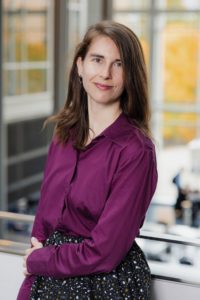 Lucía Céspedes holds a PhD in Latin American Social Studies from the Universidad Nacional de Córdoba, Argentina. She is currently based in Montréal, where she works as research counsellor at the editorial consortium Érudit, and is a member of the UNESCO Chair on Open Science (École de bibliometrie et sciences de l’information, Université de Montréal) and the Chaire de recherche du Québec sur la découvrabilité des contenus scientifiques en français. Lucía’s research brings together sociolinguistics, social studies of science and technology, and scholarly communication, in order to analyze conditions of production, circulation, and openness of scientific knowledge in centres and peripheries.
Lucía Céspedes holds a PhD in Latin American Social Studies from the Universidad Nacional de Córdoba, Argentina. She is currently based in Montréal, where she works as research counsellor at the editorial consortium Érudit, and is a member of the UNESCO Chair on Open Science (École de bibliometrie et sciences de l’information, Université de Montréal) and the Chaire de recherche du Québec sur la découvrabilité des contenus scientifiques en français. Lucía’s research brings together sociolinguistics, social studies of science and technology, and scholarly communication, in order to analyze conditions of production, circulation, and openness of scientific knowledge in centres and peripheries.
Past seminars (recordings)
SCRG is happy to launch a new season of our seminar series on academic (semi)peripheries under the title: Global Knowledge Production and Academic (Semi)Peripheries. The first seminar in this year’s series will take a distinctive form. We will outline the theoretical premises that guide the programme and identify the contextual threads to which we plan to return in later discussions. At the same time, we wish to anchor our reflections—particularly those developed by the Scholarly Communication Research Group members—in the historical trajectory of science in the Global East. As our initial reference point we will consider the paradoxes exposed by Poland’s transition from a socialist to a capitalist research system: a journey, in effect, from one periphery to another. Our featured speaker will be Jakub Krzeski, who will provide a talk entitled: „Excellence and ‘Shock Therapy’ on the Academic Periphery: The Polish Committee for Scientific Research”. Dr hab. Krystian Szadkowski will introduce the seminar series connect it with the paper’s problematics, and dr Ivan Kislenko will provide a systematic summary and rejoinder to the discussion.
Thursday, 8th of May 2025 at 14:00 CET
Abstract:
Poland’s shift to a capitalist organisation of science in the early 1990s coincided with the structural adjustment of the economy, severe austerity policies—popularly dubbed “shock therapy”—and integration into new economic and scientific centres. A central actor in this process was the Committee for Scientific Research: an unusual body whose chair held ministerial rank while most members were elected by the academic staff of public universities. The committee set science policy, allocated funding, design and oversaw evaluation. Drawing on archival sources, a journals corpus, and parliamentary‑committee transcripts, I trace the emergence and consolidation of a distinctive discourse of scientific excellence during Poland’s transformation. By mapping its contours and showing how it aligned with “shock‑therapy” dynamics, I reveal the discourse’s specific features, internal tensions, and the constraints that still limit the modernisation and development of the Polish research sector.
 Dr. Jakub Krzeski is an assistant professor at the Department of Philosophy and Social Sciences of Nicolaus Copernicus University and researcher at the Scholarly Communication Research Group. Member of Philosophy and Theory of Higher Education Society. He received his degree in 2021 defending his dissertation “A philosophical account of metrological conflict in the field of science evaluation” at the Faculty of Philosophy, Adam Mickiewicz University. His research interests focus on the social theory of quantification, critical theory and political ontology. Currently carrying out a research project entitled “Struggles over measures: The case study of research evaluation in biology in Poland in the 1990–2020 period” funded by the National Science Centre. Together with Krystian Szadkowski, he recently published A Marxist Critique of the Ruined University in the series Debating Higher Education: Philosophical Perspectives [link]. He is currently studying the historical emergence of the evaluative state in Poland and the impact of research evaluation systems on predatory publishing. His research has been published in Historical Materialism, Social Epistemology, and Research Evaluation, among others.
Dr. Jakub Krzeski is an assistant professor at the Department of Philosophy and Social Sciences of Nicolaus Copernicus University and researcher at the Scholarly Communication Research Group. Member of Philosophy and Theory of Higher Education Society. He received his degree in 2021 defending his dissertation “A philosophical account of metrological conflict in the field of science evaluation” at the Faculty of Philosophy, Adam Mickiewicz University. His research interests focus on the social theory of quantification, critical theory and political ontology. Currently carrying out a research project entitled “Struggles over measures: The case study of research evaluation in biology in Poland in the 1990–2020 period” funded by the National Science Centre. Together with Krystian Szadkowski, he recently published A Marxist Critique of the Ruined University in the series Debating Higher Education: Philosophical Perspectives [link]. He is currently studying the historical emergence of the evaluative state in Poland and the impact of research evaluation systems on predatory publishing. His research has been published in Historical Materialism, Social Epistemology, and Research Evaluation, among others.
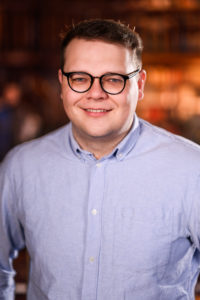 Dr. Ivan Kislenko s a postdoctoral fellow at the Scholarly Communication Research Group employed in the project “Investigating the Relationship between Science Diplomacy and Global DGT: The Role of Inclusive Metascience Observatories (IMSO4DIPLO)”. He defended his doctoral dissertation, “The Idea of Global Sociology in the International Sociological Agenda: Unity and Diversity of Interpretations,” and obtained a double PhD degree in Sociology from Higher School of Economics (Russia) and Ghent University (Belgium) in 2022. Ivan Kislenko was a research assistant at the Centre for Fundamental Sociology (Higher School of Economics), visiting researcher at the Centre for Social Theory (Ghent University) and was awarded with the Fulbright Research Fellowship to work at George Mason University (USA). He was also a visiting postdoctoral fellow at the University of Graz (Austria), Lund University (Sweden), Slovak Academy of Sciences (Slovakia) and Ludwig-Maximilian University of Munich (Germany). His research interests are global social theory, studies of social sciences and humanities (SSSH) as well as sociology of sociology, education and science.
Dr. Ivan Kislenko s a postdoctoral fellow at the Scholarly Communication Research Group employed in the project “Investigating the Relationship between Science Diplomacy and Global DGT: The Role of Inclusive Metascience Observatories (IMSO4DIPLO)”. He defended his doctoral dissertation, “The Idea of Global Sociology in the International Sociological Agenda: Unity and Diversity of Interpretations,” and obtained a double PhD degree in Sociology from Higher School of Economics (Russia) and Ghent University (Belgium) in 2022. Ivan Kislenko was a research assistant at the Centre for Fundamental Sociology (Higher School of Economics), visiting researcher at the Centre for Social Theory (Ghent University) and was awarded with the Fulbright Research Fellowship to work at George Mason University (USA). He was also a visiting postdoctoral fellow at the University of Graz (Austria), Lund University (Sweden), Slovak Academy of Sciences (Slovakia) and Ludwig-Maximilian University of Munich (Germany). His research interests are global social theory, studies of social sciences and humanities (SSSH) as well as sociology of sociology, education and science.
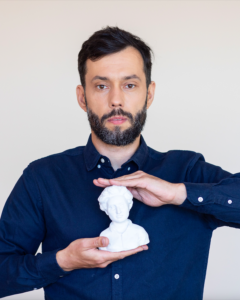 Dr. hab. Krystian Szadkowski is is a senior researcher at Faculty of Philosophy, Adam Mickiewicz University, Poznań, Poland. He works at Scholarly Communication Research Group. Recently he published Capital in Higher Education. A Critique of the Political Economy of the Sector (2023), A Marxist Critique of the Ruined University (2025) (with Jakub Krzeski) and together with Richard Hall and Inny Accioly, The Palgrave International Handbook of Marxism and Education (2023). He leads a multi-year research project on Origins and development of peripheral academic capitalism in Poland (1990-2021) funded by National Science Centre (Poland) [link], and a project on the consequences of the ‘shock therapy’ for science and higher education funded by Polish Ministry of Science and Higher Education [link].
Dr. hab. Krystian Szadkowski is is a senior researcher at Faculty of Philosophy, Adam Mickiewicz University, Poznań, Poland. He works at Scholarly Communication Research Group. Recently he published Capital in Higher Education. A Critique of the Political Economy of the Sector (2023), A Marxist Critique of the Ruined University (2025) (with Jakub Krzeski) and together with Richard Hall and Inny Accioly, The Palgrave International Handbook of Marxism and Education (2023). He leads a multi-year research project on Origins and development of peripheral academic capitalism in Poland (1990-2021) funded by National Science Centre (Poland) [link], and a project on the consequences of the ‘shock therapy’ for science and higher education funded by Polish Ministry of Science and Higher Education [link].
SCRG happily invites you to the second seminar in a new season of our series on academic (semi)peripheries. Our featured speaker will be Aliya Kuzhabekova, who will give a talk entitled: „In the Shadow of Giants: Marginalization and Agency of Kazakhstan’s Scholars in a Shifting Geopolitical Landscape”.
Thursday, 15th of May 2025 at 16:00 CET
Abstract:
Despite the passage of three decades after gaining independence from the Soviet Union, Kazakhstan remains a periphery in the global system of knowledge production. While the state has pursued an impressive array of higher education and research reforms—mobilizing its natural resource wealth to position itself as an emerging regional leader in human capital development, research output, and economic growth —these efforts remain constrained by the enduring structures of coloniality. This presentation critically examines how Kazakhstan’s scholarly community and research structures continue to be shaped by intersecting forms of epistemic dependency on Russian, Western, and increasingly Chinese systems. It also explores how these overlapping hegemonies reproduce marginalization, while also opening spaces for strategic agency through negotiation, translation, and appropriation within competing colonial assemblages.
 Aliya Kuzhabekova, PhD is an Assistant Professor at the Werklund School of Education, University of Calgary. Aliya holds a Ph.D. in Higher Education Policy from the University of Minnesota (UofM). Prior to her current appointment, Aliya worked as an Associate Professor at Nazarbayev University, Kazakhstan and a Postdoc at the Center for Science and Technology Policy, UofM. Aliya’s research interests are in the field of international and comparative higher education. Her work is focused on understanding the process of research capacity building in emerging economies and scholarly identity development of doctoral students, internationalization, and international mobility, as well as equity issues in higher education, including the advancement of women in STEM fields. She was awarded 10 research grants by the Social Sciences and Research Council of Canada, Ministry of Education and Science of Kazakhstan and the Norwegian Institute for International Affairs. Aliya is a member of the Editorial and Advisory Boards of several journals, including European Education, Journal of Comparative and International Higher Education, and Studies in Graduate and Postdoctoral Education. She has served as a Senior Co-Chair of the Europe and Central Asia Special Interest Group of the Comparative and International Education Society and a Board member of CSSHE, having contributed as a Co-Chair of the 2025 Awards Committee. She is also a current Co-Chair of the Higher Education SIG of CIES. Aliya is committed to contributing to further strengthening of CSSHE including via building connections with other scholarly societies abroad, such as Higher Education SIG of CIES.
Aliya Kuzhabekova, PhD is an Assistant Professor at the Werklund School of Education, University of Calgary. Aliya holds a Ph.D. in Higher Education Policy from the University of Minnesota (UofM). Prior to her current appointment, Aliya worked as an Associate Professor at Nazarbayev University, Kazakhstan and a Postdoc at the Center for Science and Technology Policy, UofM. Aliya’s research interests are in the field of international and comparative higher education. Her work is focused on understanding the process of research capacity building in emerging economies and scholarly identity development of doctoral students, internationalization, and international mobility, as well as equity issues in higher education, including the advancement of women in STEM fields. She was awarded 10 research grants by the Social Sciences and Research Council of Canada, Ministry of Education and Science of Kazakhstan and the Norwegian Institute for International Affairs. Aliya is a member of the Editorial and Advisory Boards of several journals, including European Education, Journal of Comparative and International Higher Education, and Studies in Graduate and Postdoctoral Education. She has served as a Senior Co-Chair of the Europe and Central Asia Special Interest Group of the Comparative and International Education Society and a Board member of CSSHE, having contributed as a Co-Chair of the 2025 Awards Committee. She is also a current Co-Chair of the Higher Education SIG of CIES. Aliya is committed to contributing to further strengthening of CSSHE including via building connections with other scholarly societies abroad, such as Higher Education SIG of CIES.
SCRG happily invites you to the third seminar in a new season of our series on academic (semi)peripheries. Our featured speaker will be Tomás Koch, who will give a talk entitled: „Science and Politics in the (Semi-)Periphery Reflections on Chilean Nation-State Imaginaries of Science and their effects on scholarship”.
Thursday, 29th of May 2025 at 14:00 CET
Abstract:
Conducting scientific research in the (semi-)periphery presents a complex set of challenges—not only due to limited resources, but also because of a strong dependence on transnational standards and shifting global dynamics. Drawing on diverse data sources, this presentation explores the historical and contemporary trajectories of science in Chile as a semi-peripheral context. Special attention is given to the types of knowledge prioritized by the Nation-State and the tensions that arise between political and scientific rationalities. Ultimately, the analysis reveals a fluctuating valuation of science by the State, which is reflected in scholarly production. These dynamics are examined within the broader framework of Chile’s (semi-)peripheral position in the global scientific landscape.
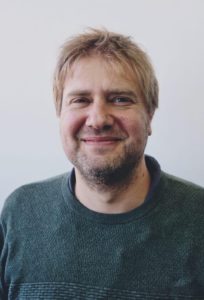 Tomás Koch, PhD is a sociologist from Universidad Central de Chile. He holds a Master’s degree in Education, with a specialization in Educational Policies, from Universidad Austral, and a Ph.D. in Sociology from Ghent University (Universiteit Gent), Belgium. He is currently a faculty member in the Department of Mediations and Subjectivities at the Faculty of Social Sciences, Universidad de Playa Ancha, where he coordinates the research line on Social Appropriation of Knowledge.
Tomás Koch, PhD is a sociologist from Universidad Central de Chile. He holds a Master’s degree in Education, with a specialization in Educational Policies, from Universidad Austral, and a Ph.D. in Sociology from Ghent University (Universiteit Gent), Belgium. He is currently a faculty member in the Department of Mediations and Subjectivities at the Faculty of Social Sciences, Universidad de Playa Ancha, where he coordinates the research line on Social Appropriation of Knowledge.
He teaches in the undergraduate Sociology program and the Ph.D. program in Social Sciences at the same institution, where he is part of the research line Production of Situated Knowledge and Participatory and Collaborative Methodologies. He is also the principal investigator of the Fondecyt Initiation project “Revisiting the Relationship between Politics and Science: A Sociological Perspective on the Trajectories, Effects, and Tensions of Chilean Science Policy.”
His research interests focus on the sociology of knowledge and higher education studies. Within these fields, he has conducted research and published on inter- and transdisciplinary work processes in Chilean universities, accreditation mechanisms, the production and circulation of scientific knowledge, and science policy, among other topics.
SCRG happily invites you to the fourth seminar in a new season of our series on academic (semi)peripheries. Our featured speaker will be Sari Hanafi, who will give a talk entitled: „A Cognitive Arab Uprising?: Paradigm Shifts in Arab Social Sciences”.
Thursday, 12th of June 2025 at 14:00 CET
Abstract:
This presentation is a synthetical one, drawing on previous work on knowledge production in the Arab world in the last decade. It will contribute to the debate about how scholarship in the Arab region has struggled with some dichotomies before being able to partially transgress them. The author presents different research trends that have evolved from mainstream critical “glocal” (global/local) trends to the more polarized ones of postcolonial and Islamic perspectives. When analyzing the latter, the author also highlights differences between the trends that existed or evolved previous to and immediately following the 2011 Arab uprisings—cognitively inspired movements that were induced by paradigm shifts in the Arab social sciences.
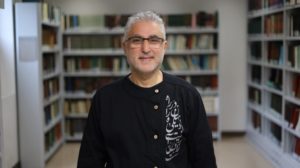 Sari Hanafi is currently a Professor of Sociology, Director of the Center for Arab and Middle Eastern Studies and Chair of the Islamic Studies program at the American University of Beirut. He was the President of the International Sociological Association (2018-2023). He was also the editor of Idafat: the Arab Journal of Sociology (Arabic) (2017-2022). Recently he created the “Portal for Social impact of scientific research in/on the Arab World” (Athar). He was the Vice President of the board of the Arab Council of Social Science (2015-2016). He holds a Ph.D. in Sociology from the Ecole des Hautes Etudes en Sciences Sociales-Paris (School for Advanced Studies in the Social Sciences) (1994). He is the author of numerous journal articles and book chapters on the sociology of religion; connection of moral philosophy to the social sciences; the sociology of (forced) migration applied to the Palestinian refugees; politics of scientific research. Among his recent books are: Studying Islam in the Arab World: The Rupture Between Religion and the Social Sciences (2024 in Routledge); Knowledge Production in the Arab World: The Impossible Promise. (with R. Arvanitis) ; The Oxford Handbook of the Sociology of the Middle East (co-edited with A. Salvatore and K. Obuse); He is the winner of 2014 Abdelhamid Shouman Award and 2015 Kuwait Award for social science. In 2019, he was awarded an Honorary Doctorate (Doctor Honoris Causa) form the National University of San Marcos (the first and the leading university in Lima- Peru – established in 1551). In 2022 he became International fellow of the British Academy. His forthcoming book “Against Symbolic liberalism: A plea for dialogical sociology” (Liverpool Univ. Press) (His website: https://sites.aub.edu.lb/sarihanafi/)
Sari Hanafi is currently a Professor of Sociology, Director of the Center for Arab and Middle Eastern Studies and Chair of the Islamic Studies program at the American University of Beirut. He was the President of the International Sociological Association (2018-2023). He was also the editor of Idafat: the Arab Journal of Sociology (Arabic) (2017-2022). Recently he created the “Portal for Social impact of scientific research in/on the Arab World” (Athar). He was the Vice President of the board of the Arab Council of Social Science (2015-2016). He holds a Ph.D. in Sociology from the Ecole des Hautes Etudes en Sciences Sociales-Paris (School for Advanced Studies in the Social Sciences) (1994). He is the author of numerous journal articles and book chapters on the sociology of religion; connection of moral philosophy to the social sciences; the sociology of (forced) migration applied to the Palestinian refugees; politics of scientific research. Among his recent books are: Studying Islam in the Arab World: The Rupture Between Religion and the Social Sciences (2024 in Routledge); Knowledge Production in the Arab World: The Impossible Promise. (with R. Arvanitis) ; The Oxford Handbook of the Sociology of the Middle East (co-edited with A. Salvatore and K. Obuse); He is the winner of 2014 Abdelhamid Shouman Award and 2015 Kuwait Award for social science. In 2019, he was awarded an Honorary Doctorate (Doctor Honoris Causa) form the National University of San Marcos (the first and the leading university in Lima- Peru – established in 1551). In 2022 he became International fellow of the British Academy. His forthcoming book “Against Symbolic liberalism: A plea for dialogical sociology” (Liverpool Univ. Press) (His website: https://sites.aub.edu.lb/sarihanafi/)
Season 1 (2021-2024) – Science and (Semi)Peripheries
SCRG will host the sixteenth seminar in the „Science and (semi)peripheries” series. Our guest speakers will be Philips Ayeni & Lynne Bowker, who will provide a talk entitled: „Translation technologies and scholarly communication: Results of a knowledge synthesis project on linguistic privilege and marginalization”. Dr Aleksandra Swatek, from SCRG, will be a discussant.
Tuesday, 6th of February 2024 at 15:00 CET

Abstract:
English plays the key role in scholarly communication and resource distribution, but using a single language for research has consequences for scholars, science and society. For instance, non-Anglophone researchers may need longer to read and write in English and may face more manuscript revisions and rejections. This may result in a lower volume of research output, which could negatively affect career advancement. Meanwhile, native English-speaking scholars, who come mainly from Western cultures, will have more visibility and power, and this could influence which subjects are investigated and which communities benefit from the results. Their higher visibility and volume of output may also improve career advancement opportunities for English speakers, such as prestigious appointments as journal editors, where they may reinforce Western viewpoints. To create a more equitable and linguistically diverse scholarly communication ecosystem, support is needed to ensure that scholars can contribute research in different languages and still be able to discover and read each other’s work. With funding in the form of a Knowledge Synthesis Grant from the Social Sciences and Humanities Research Council of Canada, we conducted a systematic literature review to better understand how translation technologies are being used in scholarly communication. In this presentation, we will present the results of this review project. A key takeaway message is that while translation technologies can facilitate linguistic diversity, tools alone are not sufficient to shift the dynamics of linguistic privilege and marginalization in scholarly communication. Rather, technology must be supported by policies that value and promote multilingualism. The full report on the project can be consulted here as of January 2024: https://doi.org.10.20381/858s-q632
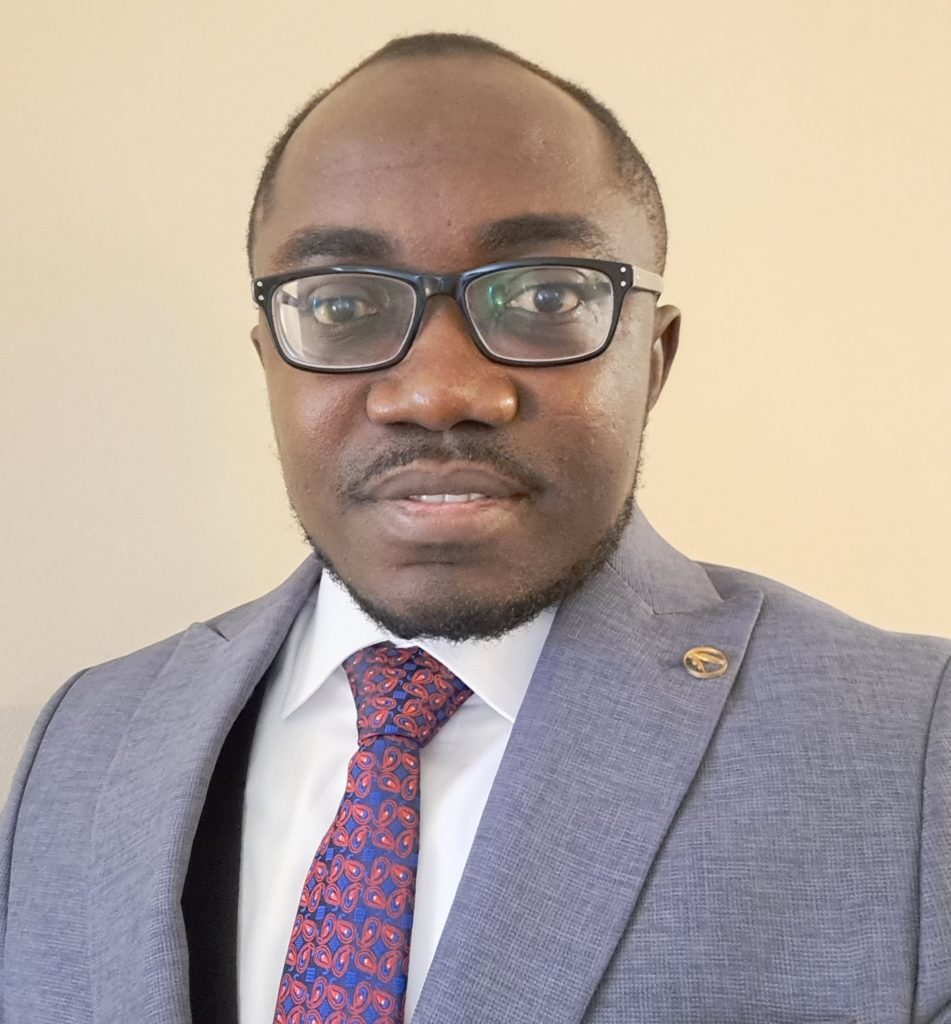 Dr. Philips Ayeni is a Postdoctoral Researcher at the School of Information Studies, University of Ottawa, Canada. He recently completed his doctoral program at McGill School of Information Studies, where his dissertation focused on “assessing open access scholarly communication practices of early- and mid-career researchers in Canada.” His research sits at the intersection of scholarly communication, research policy, and equity of access to knowledge. He employs mixed-methods research design, and interdisciplinary theories to carry out his research. He is interested in research focusing on equity issues and marginalization in scholarly communication and open access publishing. He has won several awards in support of his research, including the prestigious doctoral scholarships from Coalition Publica in 2021, and Fonds de Recherche du Québec Société et Culture (FRQSC) in 2022. You can read more about him on his website (https://philipsayeni.com/).
Dr. Philips Ayeni is a Postdoctoral Researcher at the School of Information Studies, University of Ottawa, Canada. He recently completed his doctoral program at McGill School of Information Studies, where his dissertation focused on “assessing open access scholarly communication practices of early- and mid-career researchers in Canada.” His research sits at the intersection of scholarly communication, research policy, and equity of access to knowledge. He employs mixed-methods research design, and interdisciplinary theories to carry out his research. He is interested in research focusing on equity issues and marginalization in scholarly communication and open access publishing. He has won several awards in support of his research, including the prestigious doctoral scholarships from Coalition Publica in 2021, and Fonds de Recherche du Québec Société et Culture (FRQSC) in 2022. You can read more about him on his website (https://philipsayeni.com/).
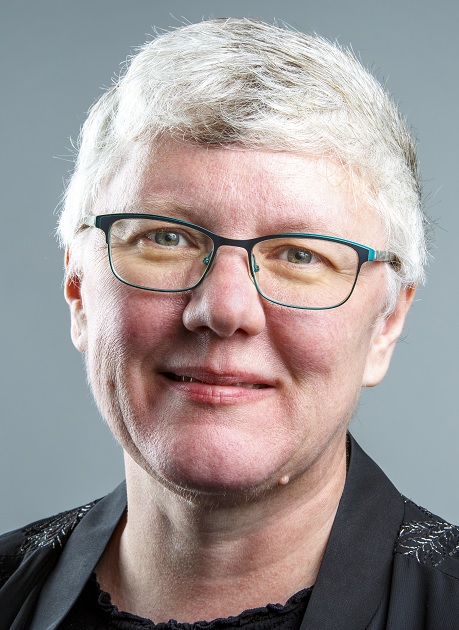 Dr. Lynne Bowker is Full Professor at the School of Translation and Interpretation of the University of Ottawa and incoming Canada Research Chair in Translation, Technologies, and Society at Université Laval. Her recent publications include Machine Translation and Global Research (Emerald, 2019) and the fully open access book De-mystifying Translation (Routledge, 2023). In 2023, she won the University of Ottawa Library’s Open Scholarship Award. Her research has been funded by the Social Sciences and Humanities Research Council of Canada, including through the Knowledge Synthesis Grant (872-2022-1003) for the project on Privilege and Marginalization.
Dr. Lynne Bowker is Full Professor at the School of Translation and Interpretation of the University of Ottawa and incoming Canada Research Chair in Translation, Technologies, and Society at Université Laval. Her recent publications include Machine Translation and Global Research (Emerald, 2019) and the fully open access book De-mystifying Translation (Routledge, 2023). In 2023, she won the University of Ottawa Library’s Open Scholarship Award. Her research has been funded by the Social Sciences and Humanities Research Council of Canada, including through the Knowledge Synthesis Grant (872-2022-1003) for the project on Privilege and Marginalization.
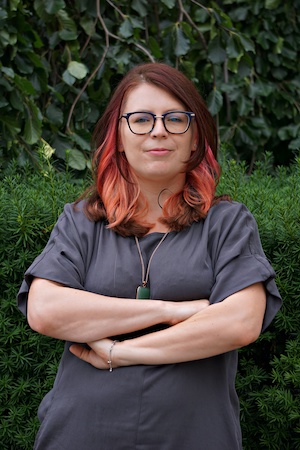 Dr. Aleksandra Swatek is a Lecturer in the English Department at Old Dominion University in Norfolk, VA. Her research interests include academic writing, second language writing and professional communication. She has been a part of the Scholarly Communication Research Group since 2020.
Dr. Aleksandra Swatek is a Lecturer in the English Department at Old Dominion University in Norfolk, VA. Her research interests include academic writing, second language writing and professional communication. She has been a part of the Scholarly Communication Research Group since 2020.
Fifteenth seminar: Tenure and incentive systems in Turkey: Shortcomings of indicator-based evaluations
SCRG will host the fifteenth seminar in the „Science and (semi)peripheries” series. Our guest speakers will be Zehra Taşkın & Güleda Doğan, who will provide a talk entitled: „Tenure and incentive systems in Turkey: Shortcomings of indicator-based evaluations.”
The seminar is open to everyone interested and it will take place on Zoom.
Registration required. Register here.
Tuesday, 16th of May 2023 at 14:00 CET.
Abstract:
The inspiration for organizing this seminar stemmed from our participation in the last Science and Semiperipheries Seminar on NRCSs developed for Latin America. Since many countries, especially (semi)peripheral ones, have similar systems, it is crucial to evaluate their pros and cons. The academic promotion and incentive systems in many (semi)peripheral countries, including Turkey, aim to increase visibility by boosting the number of publications and citations, securing a place in university ranking systems, and fostering continuous scientific production. To achieve these goals, almost all academic performance evaluation systems, such as incentive and tenure systems in Turkey, relying on indicators such as journal quartiles, article influence scores, or impact factors. However, this indicator-based approach has several negative consequences for the academic system of the country.
Therefore, the primary objective of this seminar is twofold: to explain the structure of academic performance evaluation systems in Turkey and to highlight the various problems that arise from relying on indicators for evaluations. We invite you to join us in discussing these important issues.
Key speakers:
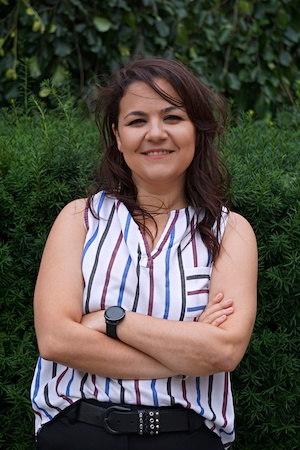 Zehra Taşkın is an Associate Professor in the Department of Information Management at Hacettepe University, Turkey. Additionally, she is a researcher at Adam Mickiewicz University Scholarly Communication Research Group in Poland. Her research interests primarily focus on research/performance evaluations, scholarly communication, and bibliometrics. Taşkın’s M.A. thesis addressed the issue of standardizing university affiliations in citation indexes, and her doctoral dissertation designed a content-based citation analysis model for the Turkish Language. Her works have been published in esteemed journals in information science, including the Journal of Informetrics, JASIS&T, QSS and Scientometrics. Moreover, Taşkın has authored articles on scholarly communication in popular science journals. From 2013 to 2019, Taşkın worked for the editorial board of the Turkish Librarianship journal. Furthermore, she serves on the peer-reviewer boards of various national and international journals. Taşkın has participated in several national and international projects funded by organizations such as the Polish National Agency for Academic Exchange (NAWA Poland), NASA Astrobiology Institute, Tokyo Institute of Technology, and TÜBİTAK (The Scientific and Technological Research Council of Turkey). She has also played an active role in the Libraries for Everyone project, funded by the Bill and Melinda Gates Foundation. For more information, visit https://zehrataskin.com
Zehra Taşkın is an Associate Professor in the Department of Information Management at Hacettepe University, Turkey. Additionally, she is a researcher at Adam Mickiewicz University Scholarly Communication Research Group in Poland. Her research interests primarily focus on research/performance evaluations, scholarly communication, and bibliometrics. Taşkın’s M.A. thesis addressed the issue of standardizing university affiliations in citation indexes, and her doctoral dissertation designed a content-based citation analysis model for the Turkish Language. Her works have been published in esteemed journals in information science, including the Journal of Informetrics, JASIS&T, QSS and Scientometrics. Moreover, Taşkın has authored articles on scholarly communication in popular science journals. From 2013 to 2019, Taşkın worked for the editorial board of the Turkish Librarianship journal. Furthermore, she serves on the peer-reviewer boards of various national and international journals. Taşkın has participated in several national and international projects funded by organizations such as the Polish National Agency for Academic Exchange (NAWA Poland), NASA Astrobiology Institute, Tokyo Institute of Technology, and TÜBİTAK (The Scientific and Technological Research Council of Turkey). She has also played an active role in the Libraries for Everyone project, funded by the Bill and Melinda Gates Foundation. For more information, visit https://zehrataskin.com
 Dr. Güleda Doğan is an Associate Professor in the Department of Information Management at Hacettepe University. Her educational background includes a Bachelor’s degree in Statistics, and her doctoral research was focused on university rankings. Dr. Doğan has extensive editorial experience in a national Turkish library science journal, spanning over 12 years. She is also a member of the ARIST/JASIST editorial team, further showcasing her expertise in the field. Her contributions to two European Union-funded projects related to open access policies, as well as her role as a consultant for the Council of Higher Education and The Scientific and Technological Research Council of Turkey, demonstrates her commitment to promoting open access and responsible research practices. Currently, Dr. Doğan is working on a national postdoc project focused on responsible ranking, which
Dr. Güleda Doğan is an Associate Professor in the Department of Information Management at Hacettepe University. Her educational background includes a Bachelor’s degree in Statistics, and her doctoral research was focused on university rankings. Dr. Doğan has extensive editorial experience in a national Turkish library science journal, spanning over 12 years. She is also a member of the ARIST/JASIST editorial team, further showcasing her expertise in the field. Her contributions to two European Union-funded projects related to open access policies, as well as her role as a consultant for the Council of Higher Education and The Scientific and Technological Research Council of Turkey, demonstrates her commitment to promoting open access and responsible research practices. Currently, Dr. Doğan is working on a national postdoc project focused on responsible ranking, which
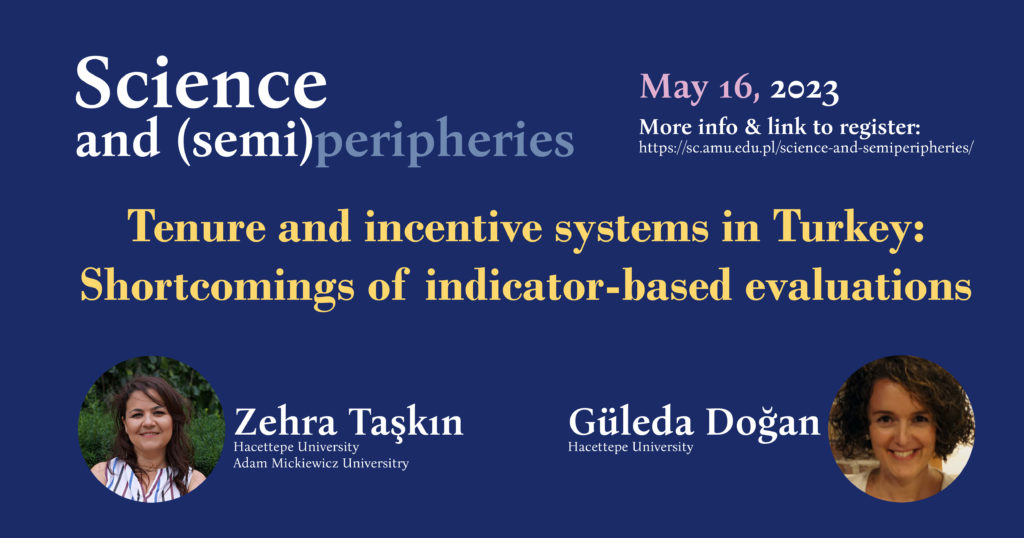
Fourteenth seminar: Special issues, mass retractions, integrity watchdogs and the global citation economy
SCRG will host the fourteenth seminar in the „Science and (semi)peripheries” series. Our guest speaker will be David Mills, who will provide a talk entitled: „Special issues, mass retractions, integrity watchdogs and the global citation economy” .
The seminar is open to everyone interested and it will take place on Zoom.
Registration required. Register here.
Friday, 5th of May 2023 at 13:00 CET.
The seminar will be recorded and published on YouTube.
Abstract:
The exponential growth in scientfic articles published by MPDI and Frontiers journals over the last decade has been powered by these publishers’ use of special issues. This business model is increasingly being copied by Elsevier, Wiley and Springer-Nature, but presents journals and publishers alike with governance and quality challenges. High-profile ‘batch retractions’ of artices from special issues have been portrayed by the scientific media and integrity watchdogs as presenting a crisis for research integrity. In this paper, written with Sefika Mertkan and Gulen Onurkan Aliusta, we analyse several such cases, focusing on journals published by the major commercial academic publishers, drawing on publication data and interviews with authors and editors. We reflect on the changing nature of academic practice across an unequal global citation economy. We argue that the discourse about research misconduct displaces attention from the demands that citation metrics and institutional publishing targets make of academics. For many researchers in the majority world, working on the peripheries of a global science system, productivism is a survival strategy.
Key speaker:
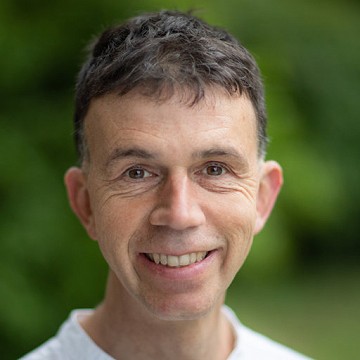 David Mills – is an Associate Professor at the University of Oxford, and Deputy Director of the Centre for Global Higher Education. Trained in anthropology, his most recent book, written with colleagues in Ghana and Oxford, is called ‘Who Counts: Ghanaian Academic Publishing and Global Science’, and was published Open Access with African Minds: https://www.africanminds.co.
David Mills – is an Associate Professor at the University of Oxford, and Deputy Director of the Centre for Global Higher Education. Trained in anthropology, his most recent book, written with colleagues in Ghana and Oxford, is called ‘Who Counts: Ghanaian Academic Publishing and Global Science’, and was published Open Access with African Minds: https://www.africanminds.co.
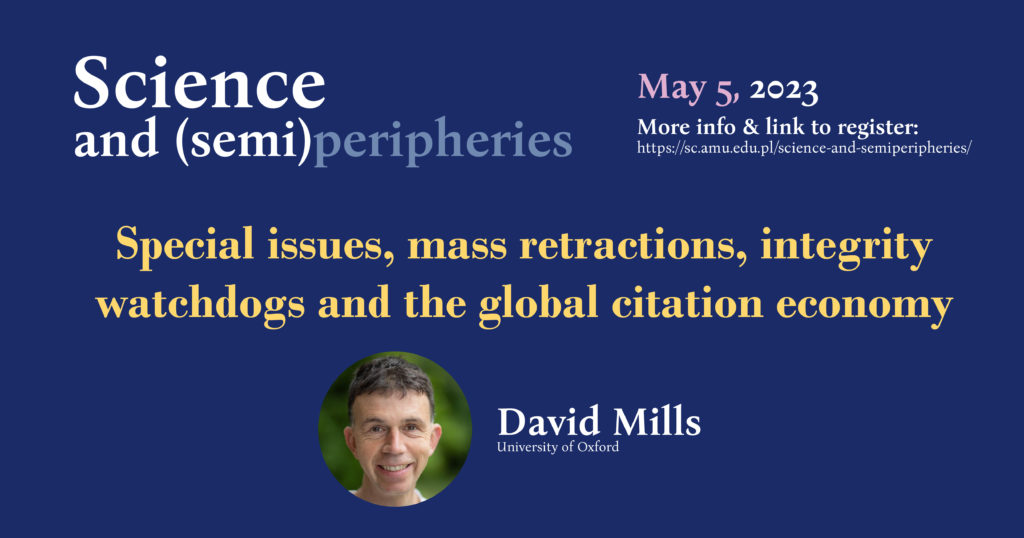
Thirteenth seminar: The Development of National Researcher Categorization Systems in Latin America
SCRG will host the thirteenth seminar in the „Science and (semi)peripheries” series. Our guest speakers will be Federico Vasen & Nerina Sarthou, who will provide a talk entitled: „The Development of National Researcher Categorization Systems in Latin America.”
The seminar is open to everyone interested and it will take place on Zoom.
Registration required. Register here.
Tuesday, 11th of April 2023 at 14:00 CET.
The seminar will be recorded and published on YouTube.
Abstract:
Evaluation procedures within academic career structures are a central part of science and technology systems. This paper is concerned with an approach to the evaluation of academic careers that has expanded in Latin America over the last 40 years. It is a scheme that evaluates the individual performance of academics based on their academic production and grants them a ‘researcher category’. Membership in these systems is prestigious and, in many cases, is also associated with a monthly reward additional to their salary. In the context of universities with a low dedication to research activities, they were aimed at increasing the number of academics involved in knowledge production. This paper characterizes National Researcher Categorization Systems (NRCSs) and distinguishes them from other evaluation systems more extensively developed in other regions. First, we build a definition of NRCS and outline its main characteristics. Then, we present a comparative analysis of their structure in 7 countries and identify common trends. Finally, we discuss categorization systems in the context of other strategies for incentivizing academic research and point to the structural effects that might be generated when NRCSs occupy a central role in a science system. Our study identified a family of systems in 5 countries (Mexico, Argentina, Uruguay, Paraguay, and Panama) that share a common structure and history. We also highlight that NRCSs might promote a classical model of academic researcher. As a result, they may hinder the development of professional profiles more in line with research oriented toward social objectives.
Key speakers:
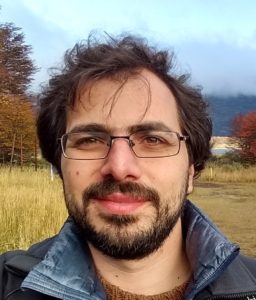 Federico Vasen has a degree in Philosophy and a PhD in Social Sciences. He is currently Associate Researcher at CONICET and lecturer at the Masters Program in S&T Policy and Management at the University of Buenos Aires (UBA). His research is focused on science and technology policy and research evaluation. Personal website: https://federico.
Federico Vasen has a degree in Philosophy and a PhD in Social Sciences. He is currently Associate Researcher at CONICET and lecturer at the Masters Program in S&T Policy and Management at the University of Buenos Aires (UBA). His research is focused on science and technology policy and research evaluation. Personal website: https://federico.
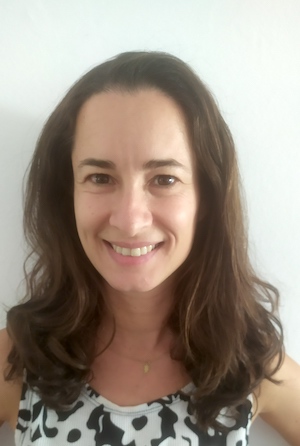 Nerina Sarthou has a degree in International Relations, a Master in Latin American Studies and a Ph.D. in Political Science. She is Associate Researcher in the National Scientific and Technical Research Council (CONICET) and professor at National University of the Center of the Buenos Aires Province (UNCPBA). She is also Vice-director of the Center for Interdisciplinary Studies in International and Local Problems. Her main lines of research are: Research evaluation policy, Research Policy and Strategic Sectors; International cooperation in Science; Science policy in Latin American countries.
Nerina Sarthou has a degree in International Relations, a Master in Latin American Studies and a Ph.D. in Political Science. She is Associate Researcher in the National Scientific and Technical Research Council (CONICET) and professor at National University of the Center of the Buenos Aires Province (UNCPBA). She is also Vice-director of the Center for Interdisciplinary Studies in International and Local Problems. Her main lines of research are: Research evaluation policy, Research Policy and Strategic Sectors; International cooperation in Science; Science policy in Latin American countries.
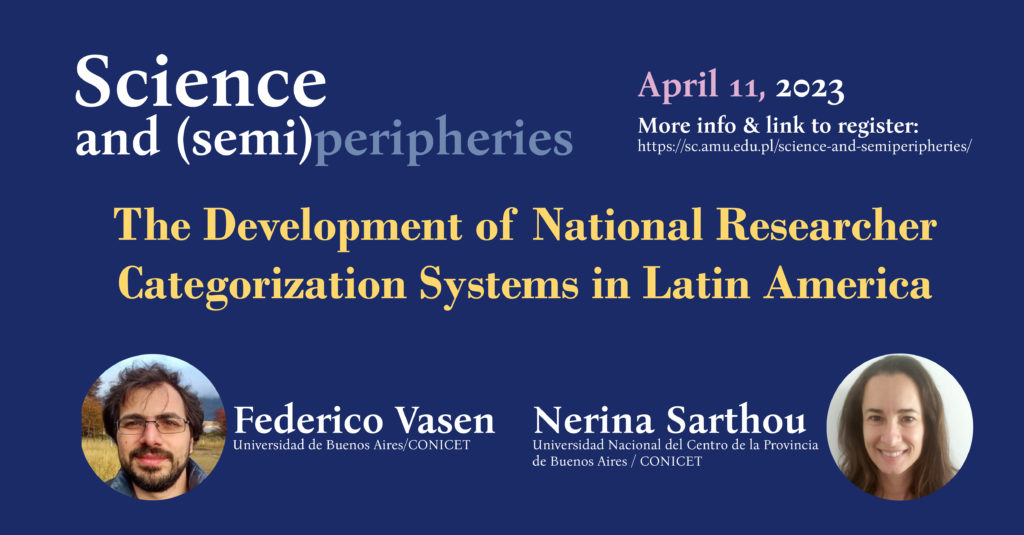
Twelve seminar: The peripheral field of power as meaning making engine: contextualizing Bourdieu with the Wallerstein, Rokkan, Steinmetz and others
SCRG will host the twelve seminar in the „Science and (semi)peripheries” series. Our guest speaker will be Tomasz Zarycki, who will provide a talk entitled: „The peripheral field of power as meaning making engine: contextualizing Bourdieu with the Wallerstein, Rokkan, Steinmetz and others.”
The seminar is open to everyone interested and it will take place on Zoom.
Registration required. Register here.
Tuesday, 13th of December 2022 at 14:00 CET.
Abstract:
The presentation will synthesize the author’s theoretical proposal developed in his recently published work entitled “The Polish Elite. “The Polish Elite and Language Sciences: A Perspective of Global Historical Sociology” (Palgrave, 2022). Its key element is a further development of the concept of the “field of power” proposed by Pierre Bourdieu. Here, it will be seen as a central mechanism of coordination of meaning-making in any society. Besides, the concept of “field of power” will be contextualized in Central and Eastern European societies which can be seen (semi-)-peripheral using the long-term historical perspective of the world system theory. Other approaches used for this purpose will be the theoretical framework proposed by Stein Rokkan, first of all, his notion of “interface peripheries,” as well as the application of the concept of the field of power to analyses of colonial areas developed within the paradigm of global historical sociology by George Steinmetz.
Key speaker:
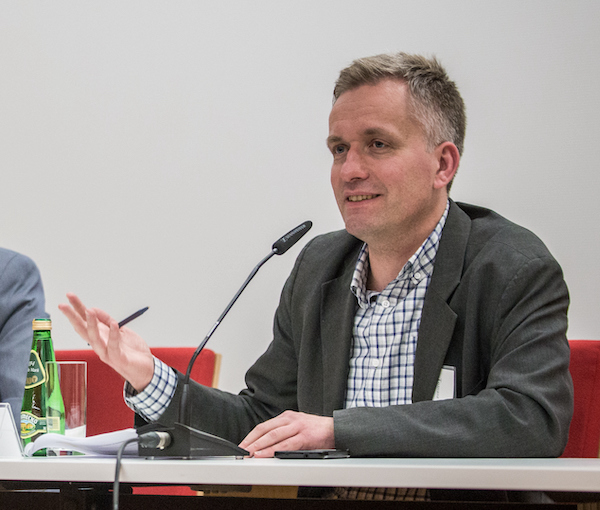 Tomasz Zarycki, Ph.D. – sociologist and social geographer, professor at the University of Warsaw and deputy director of the Robert B. Zajonc Institute for Social Studies (ISS UW). His main fields of interest include the sociology of science, politics, culture and the historical sociology of elites, as well as the socio-political geography of Central and Eastern European countries with a particular focus on Poland and Russia. His books publications include “The New Socio-Political Space of Poland” (in Polish, 1997), “The Region as a Context of Political Behavior” (in Polish, 2002), “Cultural Capital. The intelligentsia in Poland and Russia” (In Polish, 2008), “Peripheries: A New View of Center-Periphery Relationships” (In Polish, 2009), “Ideologies of Eastness in Central and Eastern Europe” (Routledge, 2014), “A Peripheral Game: Polish Political Science in the Global Field of Social Sciences” (In Polish, jointly with Tomasz Warczok, 2016), “Intelligentsia’s Totem: Aristocracy, Nobility and Landed gentry in the Polish Social Space (In Polish, jointly with Rafał Smoczynski, 2017) and The “Polish Elite and Language Sciences A Perspective of Global Historical Sociology” (Palgrave, 2022).
Tomasz Zarycki, Ph.D. – sociologist and social geographer, professor at the University of Warsaw and deputy director of the Robert B. Zajonc Institute for Social Studies (ISS UW). His main fields of interest include the sociology of science, politics, culture and the historical sociology of elites, as well as the socio-political geography of Central and Eastern European countries with a particular focus on Poland and Russia. His books publications include “The New Socio-Political Space of Poland” (in Polish, 1997), “The Region as a Context of Political Behavior” (in Polish, 2002), “Cultural Capital. The intelligentsia in Poland and Russia” (In Polish, 2008), “Peripheries: A New View of Center-Periphery Relationships” (In Polish, 2009), “Ideologies of Eastness in Central and Eastern Europe” (Routledge, 2014), “A Peripheral Game: Polish Political Science in the Global Field of Social Sciences” (In Polish, jointly with Tomasz Warczok, 2016), “Intelligentsia’s Totem: Aristocracy, Nobility and Landed gentry in the Polish Social Space (In Polish, jointly with Rafał Smoczynski, 2017) and The “Polish Elite and Language Sciences A Perspective of Global Historical Sociology” (Palgrave, 2022).
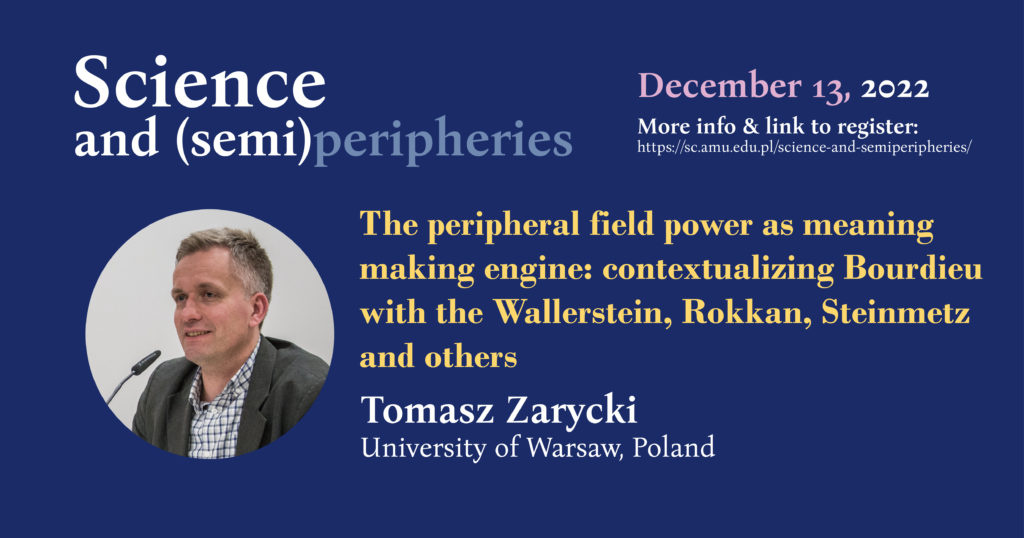
Eleventh seminar: International collaboration between scientists in traditionally non-central science systems: Novel data from Chinese and Turkish science systems
SCRG will host the eleventh seminar in the series „Science and (semi)peripheries”. Our guest speakers will be Yusuf Ikbal Oldac and Lili Yang, who will provide a talk entitled: „International collaboration between scientists in traditionally non-central science systems: Novel data from Chinese and Turkish science systems.”
The seminar is open for everyone interested and it will take place on Zoom.
Registration required. Register here.
Tuesday, 15th of November 2022 at 14:00 CET.
Abstract:
Global science is not an equal ground. Certain national science systems are more centrally positioned in global science than others. But recent trends indicate moving towards a more plural and multipolar global science. The rise of research collaborations occurs not only in the established Euro-American science systems that hold ‘central’ nodes in the globally networked science, but also in other parts of the world as science systems exercise their agency in expanding collaboration among themselves, leading to increasing global scientific connectivity. Yet, research collaborations between traditionally non-central science systems are understudied.
Against this backdrop, this talk will investigate the factors leading to increased research collaborations between scientists in China and Turkey as two traditionally non-central science systems. The term of ‘traditionally’ acknowledges that the non-central status may change over time, especially considering the rapidly rising Chinese science system. Our multiple regression analysis using an original dataset of 2256 collaborative papers and 605 China-based and Turkey-based scientists reveals the statistically significant role of in-person mobility to the other system in increasing research collaborations. Gender is also a statistically significant predictor of increased research collaborations. The paper adds further nuances to the literature that having obtained a PhD abroad or being in a large city may not lead to increased collaborations among traditionally non-central systems, although they may increase international collaborations at the conflated global level. Our further bibliometric explorations indicate that the connectivity between Chinese and Turkish science systems is multi-lateral, involving diverse science systems around the globe. Although Euro-American systems, as traditionally core systems, remain crucial, they do not dominate this connectivity. China is the stronger system in this Chinese-Turkish connectivity, but scientific collaborations benefit both countries, as well as global science.
Key speakers:
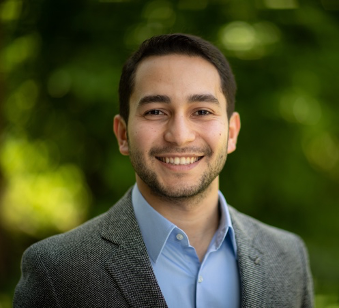 Yusuf Ikbal Oldac is a Hong Kong Research Grants Council Postdoctoral Fellow based at the Institute of Policy Studies, Lingnan University. He is also a Core Centre Fellow at the Institute of Policy Studies of the same university. He recently graduated from his funded PhD study at the University of Oxford. His overall research focuses on global science, international student mobility, and student agency and self-formation.
Yusuf Ikbal Oldac is a Hong Kong Research Grants Council Postdoctoral Fellow based at the Institute of Policy Studies, Lingnan University. He is also a Core Centre Fellow at the Institute of Policy Studies of the same university. He recently graduated from his funded PhD study at the University of Oxford. His overall research focuses on global science, international student mobility, and student agency and self-formation.
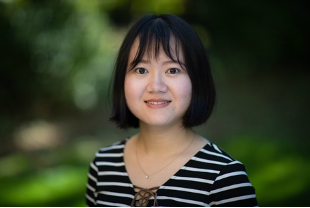 Lili Yang is an assistant professor at the Faculty of Education, the University of Hong Kong. She has strong interests in cross-cultural (especially Eastern-Western) comparison in higher education. More broadly, her research interests include higher education, comparative and international education, global science, and educational and political philosophy. Previously, Lili was a postdoctoral researcher at the Department of Education, University of Oxford, where she also received her DPhil in Education. Her new book is titled ‘Higher Education, State and Society: Comparing the Chinese and Anglo-American Approaches’ (Bloomsbury, 2023).
Lili Yang is an assistant professor at the Faculty of Education, the University of Hong Kong. She has strong interests in cross-cultural (especially Eastern-Western) comparison in higher education. More broadly, her research interests include higher education, comparative and international education, global science, and educational and political philosophy. Previously, Lili was a postdoctoral researcher at the Department of Education, University of Oxford, where she also received her DPhil in Education. Her new book is titled ‘Higher Education, State and Society: Comparing the Chinese and Anglo-American Approaches’ (Bloomsbury, 2023).
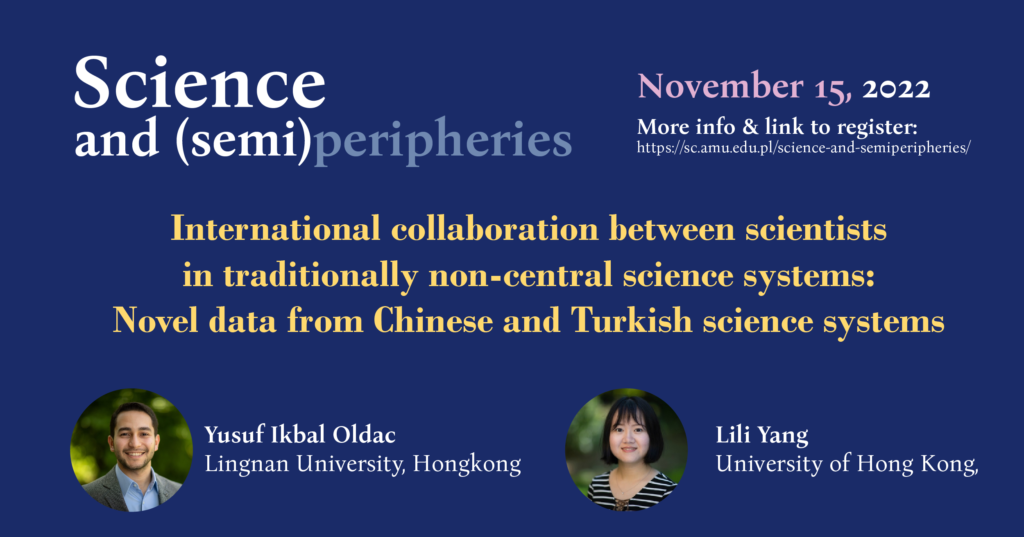
Tenth seminar: Metrics and Epistemic Injustice
SCRG will host the tenth seminar in the series „Science and (semi)peripheries”. Our guest speaker will be Lai Ma who will provide a talk entitled: „Metrics and Epistemic Injustice.”
The seminar is open to everyone interested and it will take place on Zoom.
Registration required. Register here.
Friday, 28th of October 2022 at 14:00 CET.
Abstract:
The uses of publication- and citation-based metrics in research assessment have raised many concerns: in particular, the representativeness of metrics as surrogates of quality and impact, on the one hand, and the negative consequences in research culture and knowledge production, on the other. Responsible metrics are proposed in declarations and manifestos and discussed in workshops and seminars, implying that metrics are here to stay though it is not exactly clear as to who is responsible for responsible metrics. Few, however, have explored metrics as a standard and as a technology and their leveraging powers in knowledge production. In this talk, I will discuss how metrics become a steering medium that leads to the uncoupling of the academic lifeworld and system; and more specifically, how metrics leverage who can speak and who will be heard and hence perpetuate epistemic injustice in research practices and knowledge production.
Key speaker:
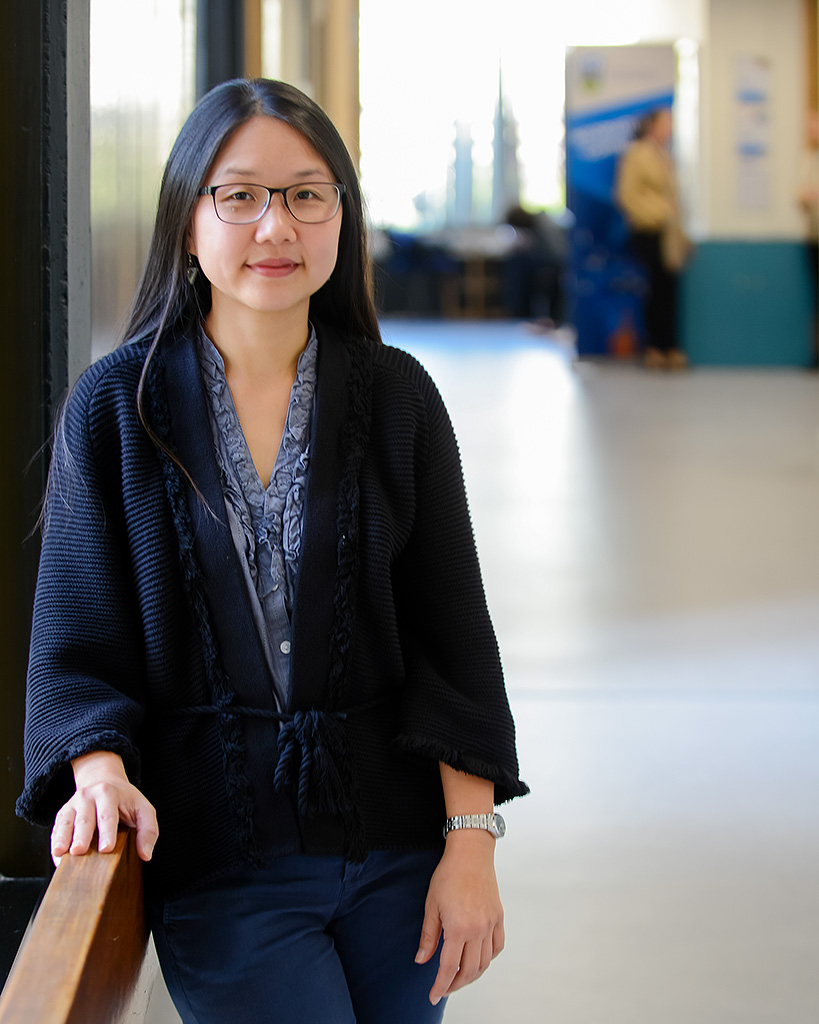
Lai Ma is Assistant Professor at the School of Information and Communication Studies, University College Dublin, Ireland. Her research is concerned with the political economy of knowledge production and scholarly communication, involving evaluative metrics, societal impact and the platformisation of (open) research infrastructure.
Ninth seminar: Castellano, português, English? The languages of sciences in the Latin American scientific field
SCRG will host the ninth seminar in the series „Science and (semi)peripheries”. Our guest speaker will be Lucía Céspedes who will provide a talk entitled: „Castellano, português, English? The languages of sciences in the Latin American scientific field.”
The seminar is open for everyone interested and it will take place on Zoom.
Registration required. Register here.
Tuesday, 25th of January 2022 at 14:00 CET.
The seminar will be recorded and published on YouTube.
Abstract:
The influence and role of languages and language use in an increasingly internationalized scientific field has been a matter of interdisciplinary debate over the last decades, as part of a broader discussion on current conditions of scientific knowledge production and circulation. In this aspect, as in many others, Latin America is a region marked by a permanent tension between autonomy and heteronomy derived from its (semi)peripheral position in the World Scientific System and the world-system in general (Beigel, 2014). In this presentation, I will offer preliminary results from a study on the presence, distribution, and value attributed to different languages used for communication among peers within the Latin American scientific field (particularly, Argentina and Brazil), understanding language as a transversal dimension to the inner logics of the field, which has a direct impact on the practices, representations, and strategies deployed by agents. Through the selection of Argentinian and Brazilian research centers as case studies and the application of mixed methodologies (surveys, interviews, and ethnographic observation), I analyze the languages used in different communicative situations and scientific disciplines in two of the central countries for science and technology in the region, in order to reflect on the current standing of Spanish and Portuguese as scientific languages, and to problematize the role of English as the hegemonic lingua franca of science.
Keyspeaker:
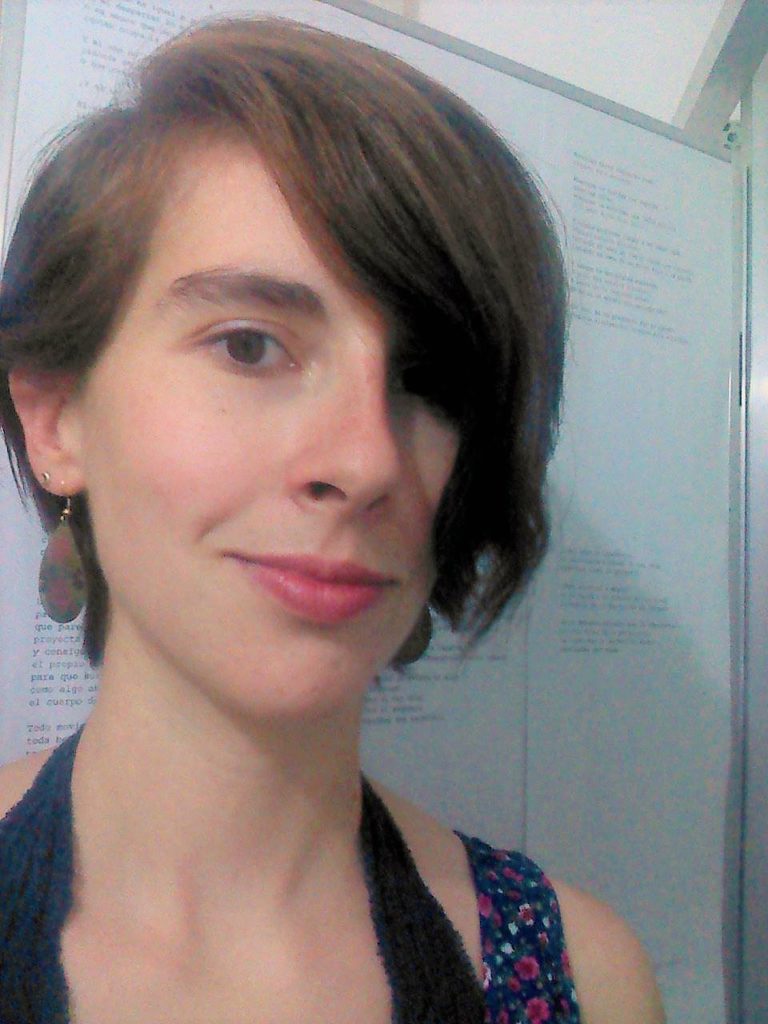 Lucía Céspedes is an advanced PhD candidate on Latin American Social Studies at the National University of Córdoba (Argentina). She holds a doctoral grant from the National Scientific and Technical Research Council (CONICET). She majored in Social Communication and specialized in Scientific Journalism and Public Communication of Science at the National University of Córdoba. She is also an Assistant Professor at the School of Law at the same university, teaching Academic Writing at undergraduate and graduate level.
Lucía Céspedes is an advanced PhD candidate on Latin American Social Studies at the National University of Córdoba (Argentina). She holds a doctoral grant from the National Scientific and Technical Research Council (CONICET). She majored in Social Communication and specialized in Scientific Journalism and Public Communication of Science at the National University of Córdoba. She is also an Assistant Professor at the School of Law at the same university, teaching Academic Writing at undergraduate and graduate level.
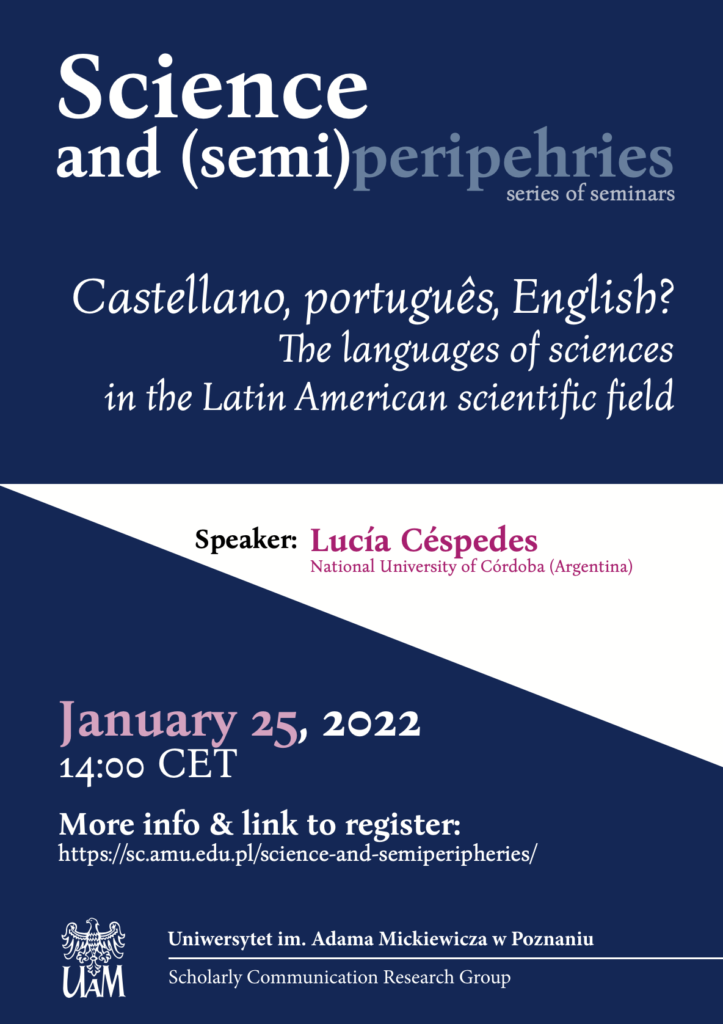
Eight seminar: The double bind of academic freedom: state and/or market capture in UK and Venezuela
SCRG will host the eight seminar in the series „Science and (semi)peripheries”. Our guest speaker will be Mariya Ivancheva who will provide a talk entitled: „The double bind of academic freedom: state and/or market capture in UK and Venezuela”. Krystian Szadkowski will be a copresenter.
The seminar is open for everyone interested and it will take place on Zoom.
Registration required. Register here.
Tuesday, 18th of January 2022 at 14:00 CET.
Abstract:
With the rise of authoritarian governments across the world, the notion of academic freedom has gained new traction in the public debate. Yet, is it enough to focus discussions on the freedom of universities from the state? Bringing evidence from extensive research on public university reforms in an advanced capitalist democracy (the UK) and a democratic socialist experiment (Venezuela), I argue that the answer is no. Discussing the market capture of higher education in these divergent contexts, I show how academic freedom is used selectively to defend existing elite privileges and inhibit processes of widening access to higher education.
Keyspeaker:
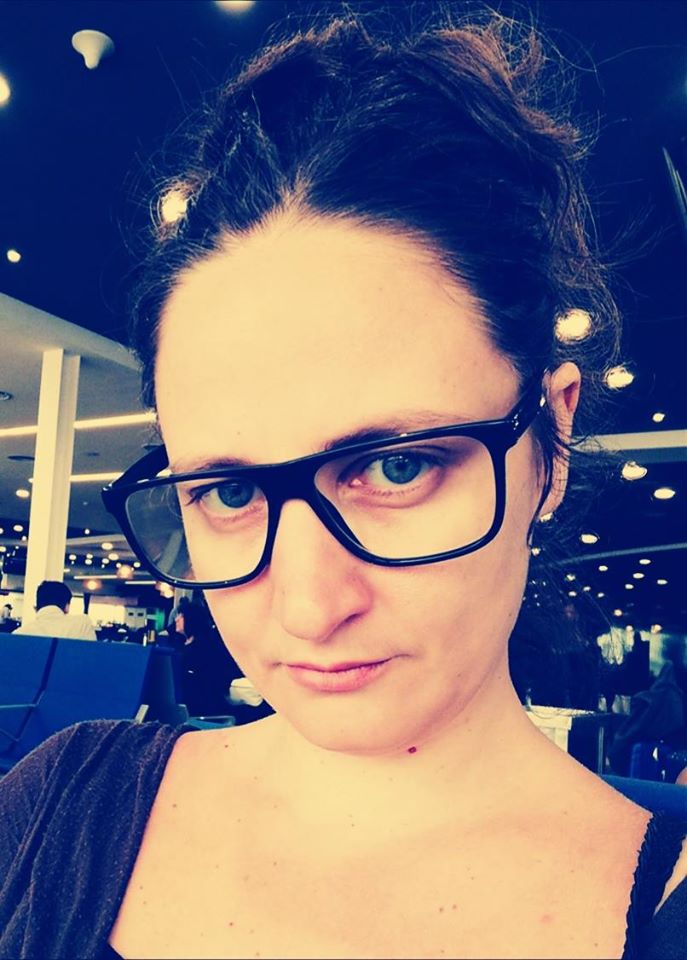 Mariya Ivancheva (University of Strathclyde) is an anthropologist and sociologist of higher education and labour. She has carried out historically grounded and theoretically informed ethnographic fieldwork and interdisciplinary mixed-method research in different regions of the world, including Eastern and Western Europe, South America and Southern Africa. Her academic and research-driven advocacy work focus on the casualisation and digitalisation of academic labour, the re/production of intersectional inequalities at universities and high-skilled labour markets, and the role of academic and student communities in broader processes of social change especially in transitions to/from socialism.
Mariya Ivancheva (University of Strathclyde) is an anthropologist and sociologist of higher education and labour. She has carried out historically grounded and theoretically informed ethnographic fieldwork and interdisciplinary mixed-method research in different regions of the world, including Eastern and Western Europe, South America and Southern Africa. Her academic and research-driven advocacy work focus on the casualisation and digitalisation of academic labour, the re/production of intersectional inequalities at universities and high-skilled labour markets, and the role of academic and student communities in broader processes of social change especially in transitions to/from socialism.
Copresenter:
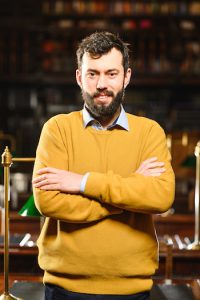 Krystian Szadkowski is a researcher at SCRG AMU. His interests cover Marxist political economy and the issues of the public and the common in higher education.
Krystian Szadkowski is a researcher at SCRG AMU. His interests cover Marxist political economy and the issues of the public and the common in higher education.
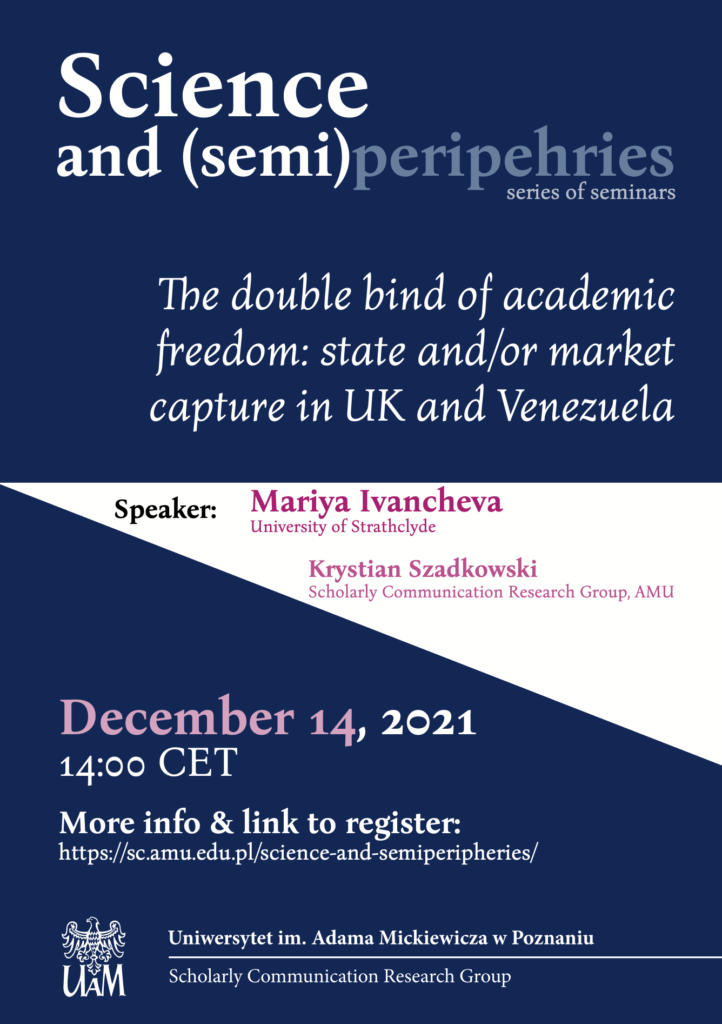
Seventh seminar: The politics of academic text production in a global context: Language, locality, knowledge
SCRG will host the seventh seminar in the series „Science and (semi)peripheries”. Our guest speaker will be Mary Jane Curry who will provide a talk entitled: „The politics of academic text production in a global context: Language, locality, knowledge.”
The seminar is open for everyone interested and it will take place on Zoom.
Registration required. Register here.
Tuesday, 11th of January 2022 at 14:00 CET.
The seminar will be recorded and published on YouTube.
Abstract:
In this talk I will provide an overview of the longitudinal ‘text-ethnographic’ study, Professional Academic Writing in a Global Context, in which Theresa Lillis and I have studied the academic writing and publishing practices of 50 education and psychology scholars from four southern and central European countries. I will then share the analytic approach used for our 2015 paper, “The politics of English, language and uptake: The case of international academic journal article reviews,” (AILA Review). This analysis draws on 95 text histories we constructed to explore the language ideologies enacted in referees’ and editors’ comments on articles submitted for publication in English-medium ‘international’ journals. It considers how orientations to ‘English’, ‘language’ and ‘language work’ are enacted in practices of reviewer uptake and the consequences of such practices for knowledge production, evaluation and circulation. It problematizes three foundational categories in applied linguistics: 1) The treating of English as a single stable semiotic resource over which the ‘native’ speaker is attributed a privileged evaluative position; 2) The overriding transparency approach to language and communication; 3) The focus on production as distinct from uptake.
You are welcome to access the materials prepared for the seminar by Mary Jane Curry: paper & handout.
Keyspeaker:
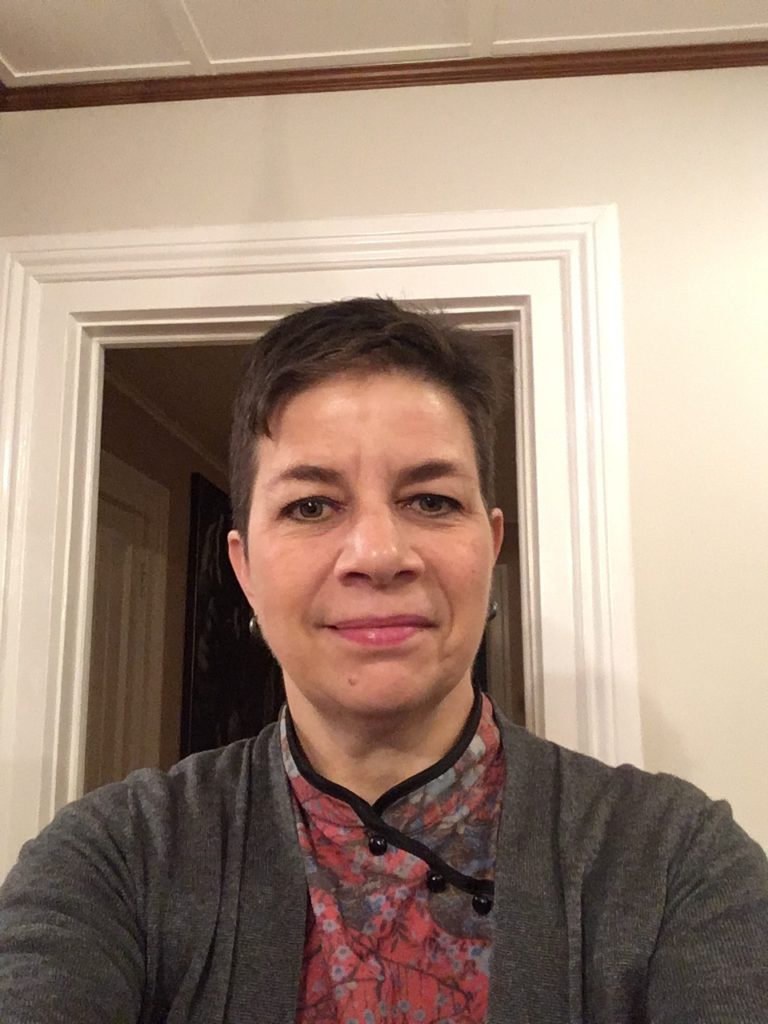 Mary Jane Curry is an Associate Professor in the Warner Graduate School of Education and Human Development, University of Rochester, USA. Curry’s research explores various facets of academic discourse as a barrier or form of cultural capital for users of English as an additional language and other types of “non-traditional” learners. Since 2001, she has conducted funded research on the experiences of scholars and graduate students writing for journal publication. First, she examined the English academic writing and publishing of southern and central European scholars, and more recently, she has been studying the experiences of engineers, particularly women, in publishing research. In a second strand of research undertaken while a research fellow at the Open University Centre for Language and Communications at Milton Keynes, U.K., Curry explored the academic literacy experiences of non-traditional U.K. students taking distance access courses taught over the telephone, work that connected to her dissertation research on immigrant community college students in an academic writing course.
Mary Jane Curry is an Associate Professor in the Warner Graduate School of Education and Human Development, University of Rochester, USA. Curry’s research explores various facets of academic discourse as a barrier or form of cultural capital for users of English as an additional language and other types of “non-traditional” learners. Since 2001, she has conducted funded research on the experiences of scholars and graduate students writing for journal publication. First, she examined the English academic writing and publishing of southern and central European scholars, and more recently, she has been studying the experiences of engineers, particularly women, in publishing research. In a second strand of research undertaken while a research fellow at the Open University Centre for Language and Communications at Milton Keynes, U.K., Curry explored the academic literacy experiences of non-traditional U.K. students taking distance access courses taught over the telephone, work that connected to her dissertation research on immigrant community college students in an academic writing course.
Curry is the co-author of A Scholar’s Guide to Getting Published in English: Critical Choices and Practical Strategies (Multilingual Matters, 2013), Academic Writing in a Global Context: The Politics and Practices of Publishing in English (Routledge, 2010) and Teaching Academic Writing: A Toolkit for Higher Education (Routledge, 2002). She is co-editor of Language, Literacy, and Learning in STEM Education: Research Methods and Perspectives from Applied Linguistics (John Benjamins, 2014); Global Academic Publishing: Policies, Perspectives, and Pedagogies (Multilingual Matters, 2018); and Educating Refugee-background Students: Critical Issues and Dynamic Contexts(Multilingual Matters, 2018). She has written articles, reviews, and book chapters on teaching English as a second language, the experiences of immigrant students learning English writing at the community college, and her current research on academic publishing.
 Aleksandra Swatek, is a research assistant professor at the Scholarly Communication Research Group. She specializes in broadly defined writing studies, drawing on various disciplines and fields such as second language writing, applied linguistics, rhetoric & composition, and professional writing. In her work at the SCRG, she will explore how early career scholars in Social Sciences and Humanities in Poland write for academic purposes in English. Specifically, she will focus on the challenges that academics, who are about to graduate from doctoral programs or those up to three years after graduation face, when they want to write for international English-language academic journals. The research project will investigate what support these early-career scholars get as they are being prepared for academic careers, and what their needs are. This research project will be conducted over 3 years (2020-2023) and is funded by the generous support of the National Science Center – Sonatina grant.
Aleksandra Swatek, is a research assistant professor at the Scholarly Communication Research Group. She specializes in broadly defined writing studies, drawing on various disciplines and fields such as second language writing, applied linguistics, rhetoric & composition, and professional writing. In her work at the SCRG, she will explore how early career scholars in Social Sciences and Humanities in Poland write for academic purposes in English. Specifically, she will focus on the challenges that academics, who are about to graduate from doctoral programs or those up to three years after graduation face, when they want to write for international English-language academic journals. The research project will investigate what support these early-career scholars get as they are being prepared for academic careers, and what their needs are. This research project will be conducted over 3 years (2020-2023) and is funded by the generous support of the National Science Center – Sonatina grant.
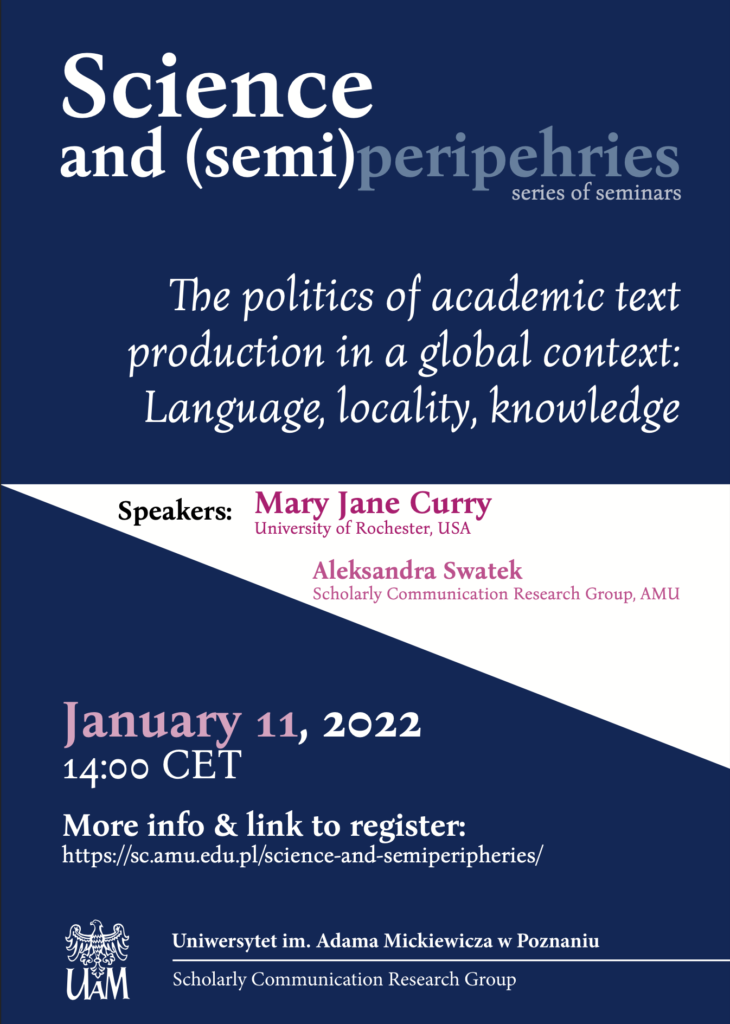
Sixth seminar: Advancing the understanding of knowledge production in the social sciences in Latin America
SCRG will host the sixth seminar in the series „Science and (semi)peripheries”. Our guest speaker will be Carolina Guzmán-Valenzuela who will provide a talk entitled: „Advancing the understanding of knowledge production in the social sciences in Latin America”. Emanuel Kulczycki will be a copresenter.
The seminar is open for everyone interested and it will take place on Zoom.
Registration required. Register here.
Tuesday, 23rd of November 2021 at 14:00 CET.
The seminar will be recorded and published on YouTube.
Abstract:
In this presentation, I will examine patterns of knowledge production in the social sciences in Latin America. Although Latin America is not a large player in the production of knowledge in the global landscape, it has a rich tradition of research in the social sciences (Garretón et al. 2005; Ruvituso, 2020; Vessuri et al, 2014), with a growing volume of publications across the social sciences over the last decade (Koch, Vanderstraeten, & Ayala, 2021; Mosbah-Natanson & Gingras, 2014). Drawing on data extracted from three well-known databases (Web of Science, Scopus and Scielo) between 2002-2018, I will discuss the main publication trends in terms of collaboration and authors’ countries of affiliations from a geopolitical perspective.
Keyspeaker:
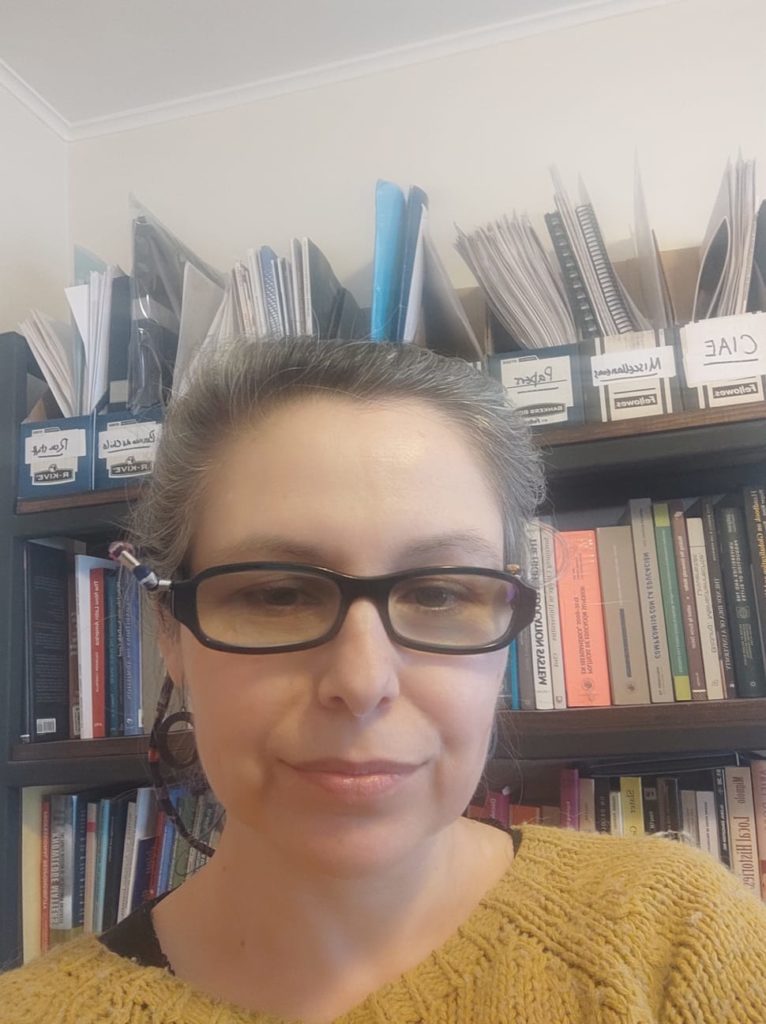 Professor Carolina Guzmán-Valenzuela is interested in the study of higher education. For the last 12 years, she has been conducting research on the role of the universities in the twenty-first century. Currently, she is leading a national project on knowledge production in the social sciences and the humanities in Latin America financed by Fondecyt Chile (1200633).
Professor Carolina Guzmán-Valenzuela is interested in the study of higher education. For the last 12 years, she has been conducting research on the role of the universities in the twenty-first century. Currently, she is leading a national project on knowledge production in the social sciences and the humanities in Latin America financed by Fondecyt Chile (1200633).
Copresenter:
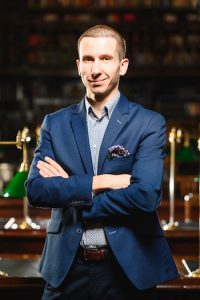 Emanuel Kulczycki is the head of the Scholarly Communication Research
Emanuel Kulczycki is the head of the Scholarly Communication Research
Group (Adam Mickiewicz University, Poznań). With a background in philosophy and communication, his research focuses on two key areas: scholarly communication and the impact of research evaluation systems, and the philosophy of communication and communication metatheory.
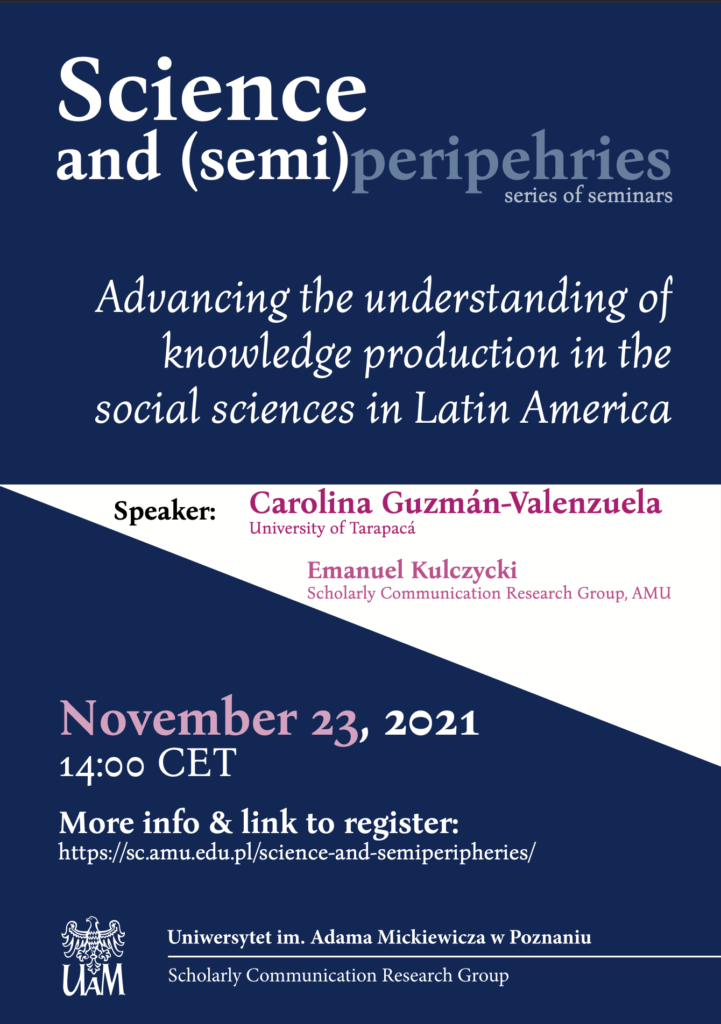
Fifth seminar: Paying inattention: The art of ignoring others’ work among Russian social scientists
SCRG will host the fifth seminar in the series „Science and (semi)peripheries”. Our guest speaker will be Mikhail Sokolov who will provide a talk entitled: „Paying inattention: The art of ignoring others’ work among Russian social scientists”. Zehra Taşkın will be a copresenter.
You can access and read Mikhail’s paper on the topic here.
The seminar is open for everyone interested and it will take place on Zoom.
Registration required. Register here.
Tuesday, 8 June 2021 at 14:00 CET.
The seminar will be recorded and published on YouTube.
Abstract:
Why do scholars pay attention to some works, and recognize the influence of their authors, but not others? Robert Merton famously suggested that scholars search for information instrumental in producing their knowledge claims and reward authors for making important contributions. Opposing him, the critical sociologists of scientific knowledge explained recognition (e.g. in the form of citing) as rhetorical practices that strengthen one’s credibility. Both models fail to explain why academics sometimes ignore apparently relevant sources or how groups of scholars turn into bubbles, censoring information about findings made outside of them. According to the theoretical model suggested in this paper, what governs information search is not first-order relevance (what individual academics consider relevant), but second-order awareness (what they know their audiences are aware of). In this model, the search for information is mostly governed by the necessity to make successful claims of novelty – to present findings that are new to one’s audience. Individuals easily disregard findings their audiences are unaware of. Institutionally organized audiences thus serve as enforcers of information search, and their members may tacitly collaborate in maintaining unawareness of intellectual developments outside of their common attention space In the empirical part of the paper, we use the example of post-Soviet sociology to test the predictions following from this model: (1) that scarcity of enforcement results in an overall shrinking of individuals’ attention spaces, and in their attaining idiosyncratic configurations; (2) that when borders of audiences cross-cut legitimate classifications, attention spaces are shaped by the former, rather than the latter; (3) that as a reaction to such cross-cutting, new classifications are introduced, legitimizing existing in
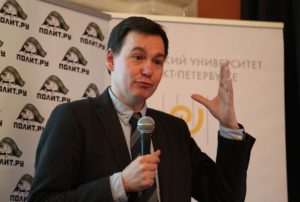 Mikhail Sokolov is professor of sociology at European university at St.Petersburg, Russia. He received his PhD in 2003 from St.Petersburg State University for a dissertation on the Russian extreme Right movement. Since than, he published extensively on subjects related to sociology and history of social sciences, sociology of culture, social stratification in post-soviet societies, and microsociological theory by Erving Goffman.
Mikhail Sokolov is professor of sociology at European university at St.Petersburg, Russia. He received his PhD in 2003 from St.Petersburg State University for a dissertation on the Russian extreme Right movement. Since than, he published extensively on subjects related to sociology and history of social sciences, sociology of culture, social stratification in post-soviet societies, and microsociological theory by Erving Goffman.
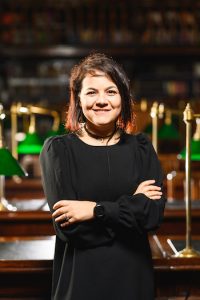 Dr. Zehra Taşkın is a visiting professor of the Scholarly Communication Research Group. She is awarded by the ULAM Program conducted by NAWA Poland to carry out the project entitled Creating content based citation analysis system for English and Polish. Her main research interests are research/er performance evaluations, bibliometrics, data visualization, scholarly communication and social network analyses. Taşkın’s works have been published in prestigious journals in information science such as Scientometrics, Online Information Review and Library Hi-Tech.
Dr. Zehra Taşkın is a visiting professor of the Scholarly Communication Research Group. She is awarded by the ULAM Program conducted by NAWA Poland to carry out the project entitled Creating content based citation analysis system for English and Polish. Her main research interests are research/er performance evaluations, bibliometrics, data visualization, scholarly communication and social network analyses. Taşkın’s works have been published in prestigious journals in information science such as Scientometrics, Online Information Review and Library Hi-Tech.
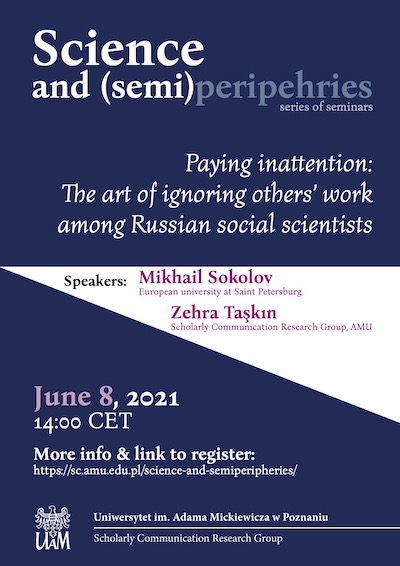
Fourth seminar: Poland as an academic periphery? Insights from a qualitative study of foreign-born faculty
SCRG will host the fourth seminar in the series „Science and (semi)peripheries”. Our guest speaker will be Kamil Luczaj who will provide a talk entitled: „Poland as an academic periphery? Insights from a qualitative study of foreign-born faculty”. Stanisław Krawczyk will be a copresenter.
You can access and read Kamil’s recent papers on the topic here.
The seminar is open for everyone interested and it will take place on Zoom.
Registration required. Register here.
Tuesday, 25 May 2021 at 14:00 CET.
The seminar will be recorded and published on YouTube.
Abstract:
“Academic periphery” can be conceptualized using various theoretical strategies and refined with many kinds of empirical data. This paper builds on a dataset of 100 qualitative in-depth interviews conducted in 2018 and 2019 with foreign-born scholars employed in Poland. The peripheral position of Polish higher education institutions was one of the recurrent themes. This presentation discusses six indicators of peripheral status, referred to as ‘status periphery,’ ‘career periphery,’ ‘workplace periphery,’ ‘mental periphery,’ ‘language periphery,’ and ‘relational periphery.’ In this context, it is tempting to address a question: “Why (at all) do some scholars choose Poland?” To that end, I discuss the “dart-throw” recruitment process, a phenomenon typical for peripheries, and indicate some of the unobvious reasons, which triggered international scholars to Eastern Europe.
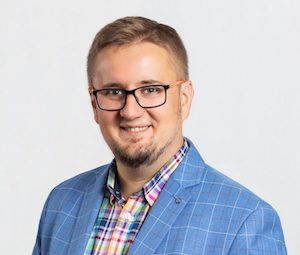 Kamil Łuczaj is an Assistant Professor at the University of Information Technology and Management in Rzeszow, Poland and a Visiting Academic at the Faculty of Education, University of Cambridge, UK. His research focuses on migration studies and the sociology of culture. He is a member of the Committee for Migration Studies, Polish Academy of Sciences.
Kamil Łuczaj is an Assistant Professor at the University of Information Technology and Management in Rzeszow, Poland and a Visiting Academic at the Faculty of Education, University of Cambridge, UK. His research focuses on migration studies and the sociology of culture. He is a member of the Committee for Migration Studies, Polish Academy of Sciences.
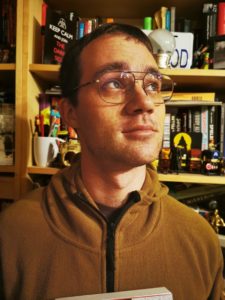 Stanisław Krawczyk is a sociologist interested in the study of various cultural objects, from video games, to popular prose, to academic works. His PhD, which concerns the field of science fiction and fantasy literature in Poland, employs sociological discourse analysis as well as qualitative content analysis. He joined the Scholarly Communication Research Group in December 2020 to work in the Evaluation Game project, where his main task is to analyze a series of interviews with Polish scholars.
Stanisław Krawczyk is a sociologist interested in the study of various cultural objects, from video games, to popular prose, to academic works. His PhD, which concerns the field of science fiction and fantasy literature in Poland, employs sociological discourse analysis as well as qualitative content analysis. He joined the Scholarly Communication Research Group in December 2020 to work in the Evaluation Game project, where his main task is to analyze a series of interviews with Polish scholars.
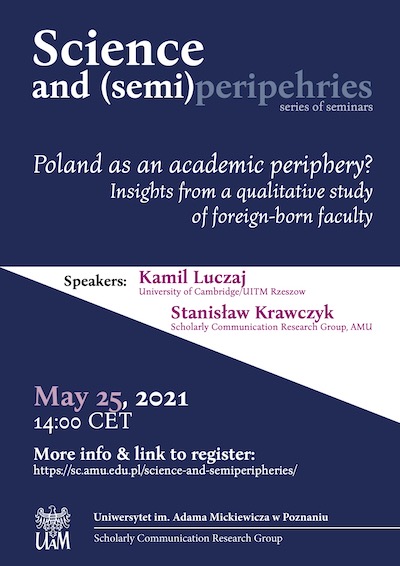
Third seminar: Centres and peripheries in the production of social science knowledge
SCRG will host the third seminar in the series „Science and (semi)peripheries”. Our guest speaker will be Leandro Rodriguez Medina who will provide a talk entitled: „Centres and peripheries in the production of social science knowledge”. Emanuel Kulczycki will be a copresenter.
The seminar is open for everyone interested and it will take place on Zoom.
Registration required. Register here.
Tuesday, 11 May 2021 at 14:00 CET.
The seminar will be recorded and published on YouTube.
Abstract:
The idea of centres and peripheries in the production of social science knowledge is not new, but it needs constant updating. This is because centres and peripheries are not static categories, but the product of stabilised asymmetric global relations. Inequalities of infrastructure, languages, prestige and economic resources are constitutive of relations between institutions, countries and regions. In turn, these asymmetries permeate structures of academic evaluation, flows of knowledge circulation, and relations between academics at all levels. This talk will present a global scenario in social science production and then delve into its implications for contemporary scholarship, with a focus on Latin America and other peripheral areas.
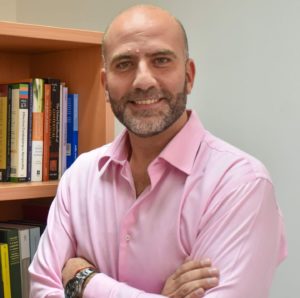 Leandro Rodriguez Medina (PhD Cambridge) is an Associate Professor at the Department of International Relaciones and Political Science at Universidad de las Americas Puebla (UDLAP). He is member of the National System of Researchers at Level II (SNI) of the Mexican Council for Science and Technology (CONACYT) and the founding Editor-in-Chief of Tapuya: Latin American Science, Technology and Society. He had held visiting positions at Albert-Ludwig Universität Freiburg (Germany), Universidad Autónoma Metropolitana-Azcapotzalco (Mexico), the Institut des Hautes Etudes de l’Amérique latine at Université Paris 3-Sorbonne Nouvelle (France) and the Centre Population et Développement at Université Paris 5-Descartes (France). His research interests are the social studies of science and technology, the international circulation of knowledge and the relationship between culture and cities. Recent publications include “Una geopolítica del acceso abierto: información, software y lectura” (Estudios Sociológicos 37(111): 727-755, 2019), “International Ties at Peripheral Sites: Co-producing Social Processes and Scientific Knowledge in Latin America” (Science as Culture 28(4): 562-588, 2019), and “Enacting networks, crossing borders: A STS perspective on the internationalization of the social sciences in Mexico” (Current Sociology 67(5): 705-722, 2019). He is currently working on edited volumes on Actor-Network Theory (Editorial de El Colegio de México), academic knowledge circulation (University College London Press) and on decentralizing knowledges and distributed agencies (Duke University Press).
Leandro Rodriguez Medina (PhD Cambridge) is an Associate Professor at the Department of International Relaciones and Political Science at Universidad de las Americas Puebla (UDLAP). He is member of the National System of Researchers at Level II (SNI) of the Mexican Council for Science and Technology (CONACYT) and the founding Editor-in-Chief of Tapuya: Latin American Science, Technology and Society. He had held visiting positions at Albert-Ludwig Universität Freiburg (Germany), Universidad Autónoma Metropolitana-Azcapotzalco (Mexico), the Institut des Hautes Etudes de l’Amérique latine at Université Paris 3-Sorbonne Nouvelle (France) and the Centre Population et Développement at Université Paris 5-Descartes (France). His research interests are the social studies of science and technology, the international circulation of knowledge and the relationship between culture and cities. Recent publications include “Una geopolítica del acceso abierto: información, software y lectura” (Estudios Sociológicos 37(111): 727-755, 2019), “International Ties at Peripheral Sites: Co-producing Social Processes and Scientific Knowledge in Latin America” (Science as Culture 28(4): 562-588, 2019), and “Enacting networks, crossing borders: A STS perspective on the internationalization of the social sciences in Mexico” (Current Sociology 67(5): 705-722, 2019). He is currently working on edited volumes on Actor-Network Theory (Editorial de El Colegio de México), academic knowledge circulation (University College London Press) and on decentralizing knowledges and distributed agencies (Duke University Press).
Email: leandro.rodriguez@udlap.mx
 Emanuel Kulczycki is the head of the Scholarly Communication Research
Emanuel Kulczycki is the head of the Scholarly Communication Research
Group (Adam Mickiewicz University, Poznań). With a background in philosophy and communication, his research focuses on two key areas: scholarly communication and the impact of research evaluation systems, and the philosophy of communication and communication metatheory. He has published widely in both fields, authoring two monographs, three edited collections, and over fifty articles in refereed journals including Nature, Research Evaluation, Scientometrics, and Journal of Informetrics.
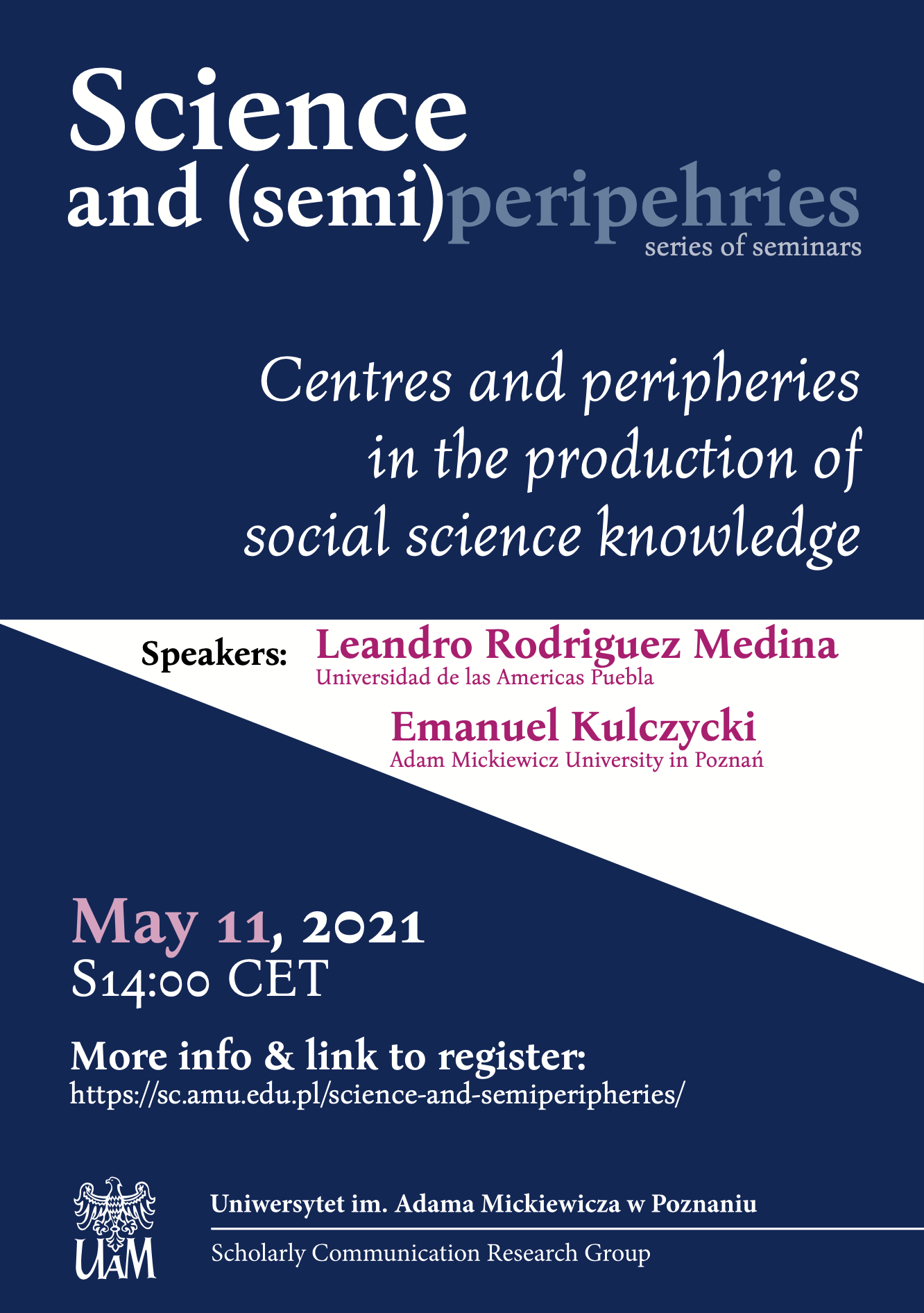
Second seminar: Hegemony and inequality in global science: Problems of the centre-periphery model
SCRG will host the second seminar in the series „Science and (semi)peripheries”. Our guest speakers will be Simon Marginson and Xin Xu, they will present a paper entitled: „Hegemony and inequality in global science: Problems of the centre-periphery model”. The discussant to a paper will be Krystian Szadkowski.
The seminar is open for everyone interested and it will take place on Zoom.
Registration required. Register here.
Tuesday, 27 April 2021 at 13:00 CET.
Abstract:
The autonomous global system of science, grounded in collegial networks of scientists, English-language publishing and cross-border authorship, is expanding at a rapid rate and has fostered the growth of national science infrastructure in a growing number of countries. The global geo-politics of science is changing: the United States remains the leading country but there are several strong systems outside Euro-America and China excels in total volume of papers and in some STEM disciplines. Paradoxically, however, this pluralisation plays out within a continuing Euro-American (and predominantly Anglo-American) science world regulated by an inside/outside binary. Global science remains unequalising and homogenising, primarily Anglo-American in its language, leading institutions, disciplinary and publishing regimes, agendas and topics. Other languages and insights are shut out, including endogenous (indigenous) knowledges. Scholarship on science has yet to effectively address these issues. Quantitative studies in scientometrics are under theorised. The dominant conceptual framework for explaining global science is world-systems theory and its centre-periphery model of national systems. However, this framework has passed its use-by date.
In this webinar, the speakers will critically review the centre-periphery model and its applications in science studies. The model is locked within the Eurocentrism it opposes and is unduly determinist. It cannot grasp the dynamics of the specifically global aspect of science; and radically under-estimates the potential for agency outside the ‘centre’ countries, as shown by the capacity of states on the ‘semi-periphery’ and ‘periphery’ to lift science and the scope for ‘peripheral’ scientists to operate autonomously. Advocates of world systems theory in science are forced into recurring modifications, or looser core concepts, signs of an obsolete paradigm. The presenters will argue for a critical focus on global hegemony, instead of the critique of the world as a centre-periphery formation, encompassing cultural factors as well as political economy, and for an ‘ecology of knowledges’ approach to science and knowledge systems.
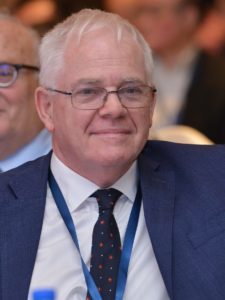 Simon Marginson is Professor of Higher Education at the University of Oxford, Director of the ESRC/OFSRE Centre for Global Higher Education (CGHE), Joint Editor-in-Chief of Higher Education, and Lead Researcher with Higher School of Economics in Moscow. Simon’s research is focused primarily on global and international higher education, the contributions of higher education and higher education as a public and common good, and higher education and social inequality. At Oxford he leads the MSc (Education) subject on ‘Global higher education’. His recent books include Higher Education in Federal Countries, edited with Martin Carnoy, Isak Froumin and Oleg Leshukov (Sage, 2018) and High Participation Systems of Higher Education, edited with Brendan Cantwell and Anna Smolentseva (Oxford University Press, 2018).
Simon Marginson is Professor of Higher Education at the University of Oxford, Director of the ESRC/OFSRE Centre for Global Higher Education (CGHE), Joint Editor-in-Chief of Higher Education, and Lead Researcher with Higher School of Economics in Moscow. Simon’s research is focused primarily on global and international higher education, the contributions of higher education and higher education as a public and common good, and higher education and social inequality. At Oxford he leads the MSc (Education) subject on ‘Global higher education’. His recent books include Higher Education in Federal Countries, edited with Martin Carnoy, Isak Froumin and Oleg Leshukov (Sage, 2018) and High Participation Systems of Higher Education, edited with Brendan Cantwell and Anna Smolentseva (Oxford University Press, 2018).
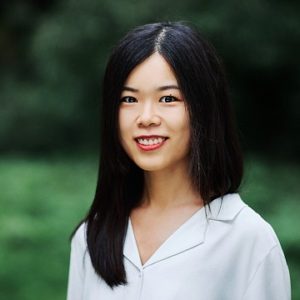 Xin Xu is a Research Fellow at Centre for Global Higher Education, Department of Education, and a Junior Research Fellow at Kellogg College, University of Oxford.
Xin Xu is a Research Fellow at Centre for Global Higher Education, Department of Education, and a Junior Research Fellow at Kellogg College, University of Oxford.
 Krystian Szadkowski is a researcher at SCRG AMU. His interests cover Marxist political economy and the issues of the public and the common in higher education.
Krystian Szadkowski is a researcher at SCRG AMU. His interests cover Marxist political economy and the issues of the public and the common in higher education.
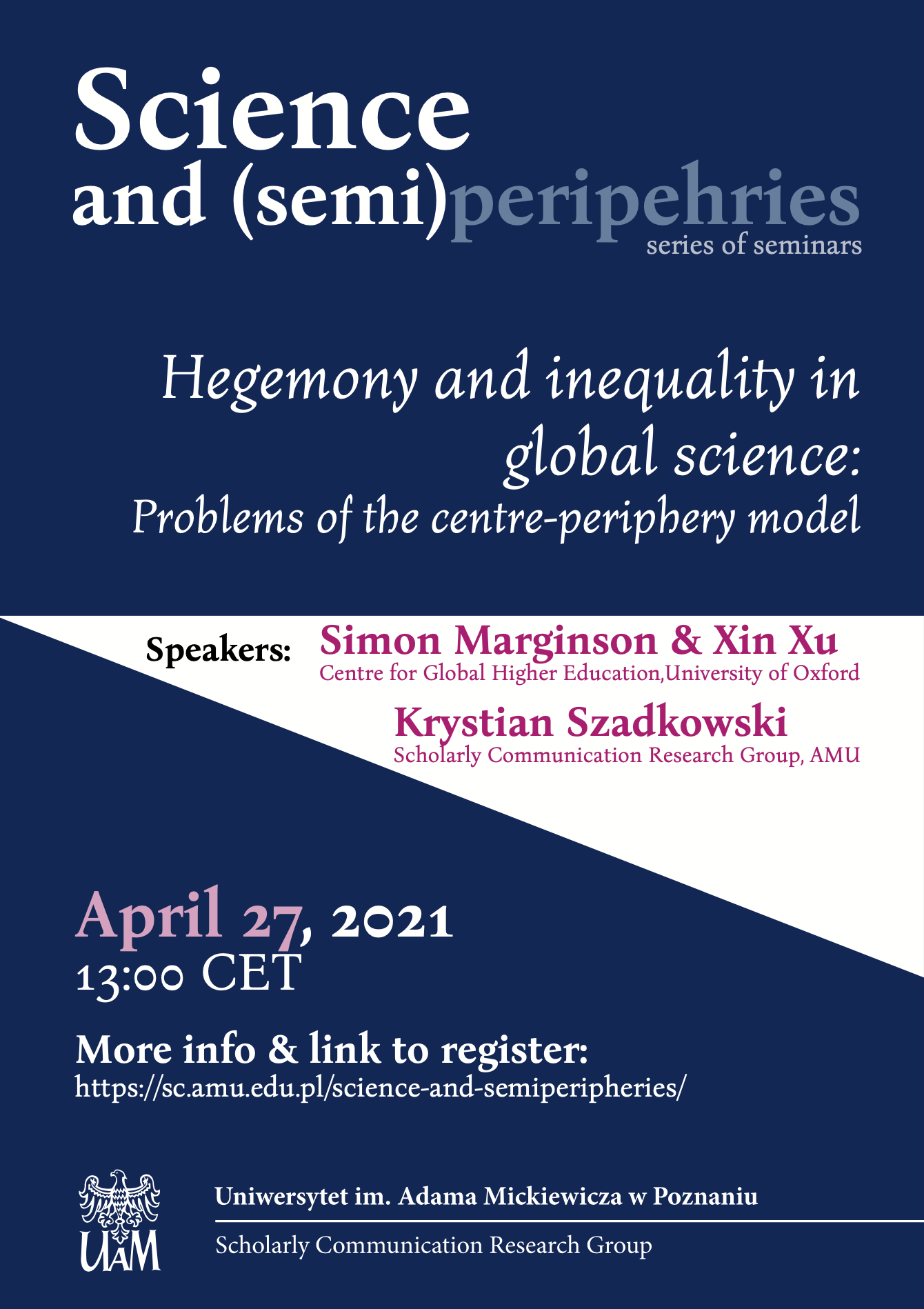
This seminar will take place as the first of the series “Science and (semi)peripheries”. Our guests will be Adam Płoszaj and Andrzej W. Nowak and our starting point will be the book The geography of scientific collaboration, which is co-authored by Adam Płoszaj. We will focus on the most important patterns in modern research collaboration and the ways they shape the knowledge production in the (semi)peripheries. While we can observe an increase in scientific collaboration, it does not seem to lead to an end of the division on the center and the peripheries. Increased collaboration can even strengthen international academic hierarchies, although it can also weaken them. We will discuss the recent trends in scholarly collaboration and how they shape the international hierarchy of knowledge. We will also try to answer the questions: How does studying changing trends in collaboration could help us to overcome limitations of the modern international science? And what are the possible ways of initiating scientific collaboration that will lead to more equal academia? Andrzej W. Nowak – Semi-periphery and scientific collaboration – 2021-03-16 Adam Płoszaj – The geography of scientific collaboration – 2021-03-16 The seminar is open for everyone interested and it will take place on Zoom. Tuesday,16 March 2021 at 14:00 CET. We encourage all participants to read the book The geography of scientific collaboration (A. Olechnicka, A. Płoszaj, D. Celińska-Janowicz, 2018, Routledge)and join the discussion during the seminar. He is the co-author of the book The geography of scientific collaboration (2019) published by Routledge and the author of the book Networks of institutions of the business environment (2014, in Polish). First Seminar: “Geopolitics of scientific collaboration”
16 March 2021 at 14:00 CET
Registration required. Register here.
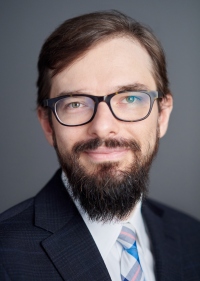 Adam Płoszaj is an assistant professor at the Centre for European Regional and Local Studies EUROREG, University of Warsaw. He specialises in interdisciplinary studies of regional and local development, R&D policy, science of science, and policy evaluation. Visiting scholar at Carleton University in Ottawa, Canada (2011), the University of Groningen, the Netherlands (2014), University College London, England (2014), and Indiana University Bloomington (2016), Adam frequently advises national and international institutions―including the European Commission, World Bank, UNDP, National Centre for Research and Development, National Science Centre, Polish National Agency for Academic Exchange, and Polish Agency of Business Development―on regional development and research policy.
Adam Płoszaj is an assistant professor at the Centre for European Regional and Local Studies EUROREG, University of Warsaw. He specialises in interdisciplinary studies of regional and local development, R&D policy, science of science, and policy evaluation. Visiting scholar at Carleton University in Ottawa, Canada (2011), the University of Groningen, the Netherlands (2014), University College London, England (2014), and Indiana University Bloomington (2016), Adam frequently advises national and international institutions―including the European Commission, World Bank, UNDP, National Centre for Research and Development, National Science Centre, Polish National Agency for Academic Exchange, and Polish Agency of Business Development―on regional development and research policy.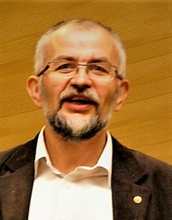 Andrzej W.Nowak is a professor in the Philosophy Department of Adam Mickiewicz University, Poznań, Poland. His current research focus is on (social) ontology and social studies of science and technology. He is a propagator of Immanuel Wallerstein’s theory of the modern world-system and is particularly interested in the study of semi-peripherality. He published books Ontological imagination. Philosophical (re)construction of phronetic social science (2016, in Polish), Agency, system, modernity (2011, in Polish) and is the co-author of Whose fear? Whose science? Structures of knowledge and socio-scientific controversies (2016, in Polish). He also writes articles for the LeftEast (http://www.criticatac.ro).
Andrzej W.Nowak is a professor in the Philosophy Department of Adam Mickiewicz University, Poznań, Poland. His current research focus is on (social) ontology and social studies of science and technology. He is a propagator of Immanuel Wallerstein’s theory of the modern world-system and is particularly interested in the study of semi-peripherality. He published books Ontological imagination. Philosophical (re)construction of phronetic social science (2016, in Polish), Agency, system, modernity (2011, in Polish) and is the co-author of Whose fear? Whose science? Structures of knowledge and socio-scientific controversies (2016, in Polish). He also writes articles for the LeftEast (http://www.criticatac.ro).